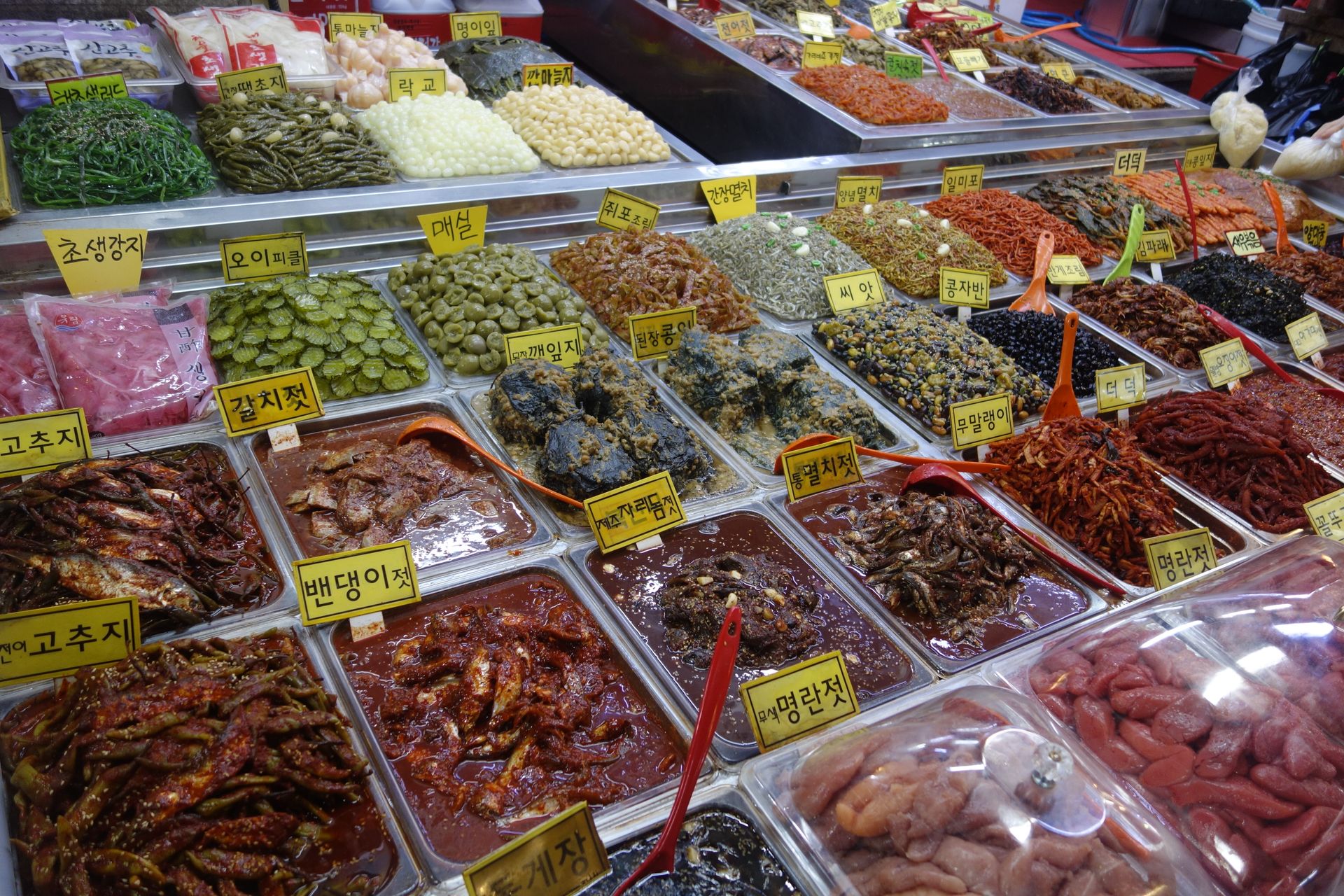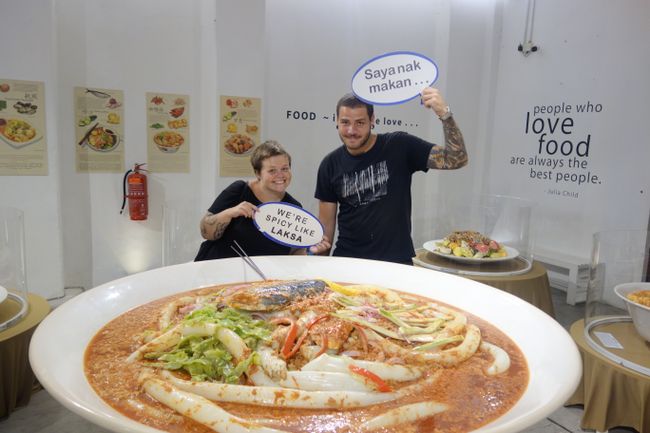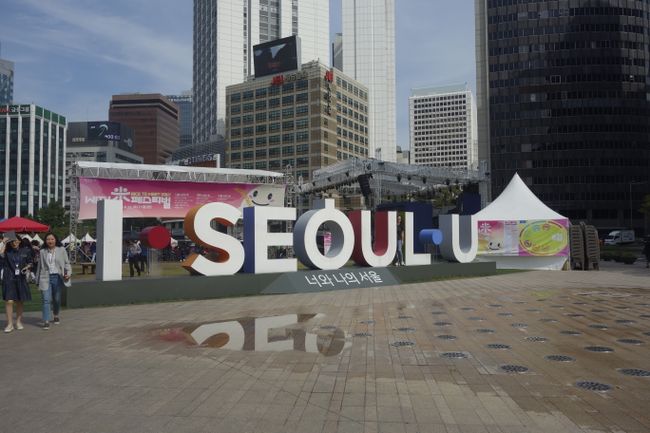24.09.19 - 04.10.19 Seoul and surrounding area for two
Được phát hành: 04.10.2019
Đăng ký tin

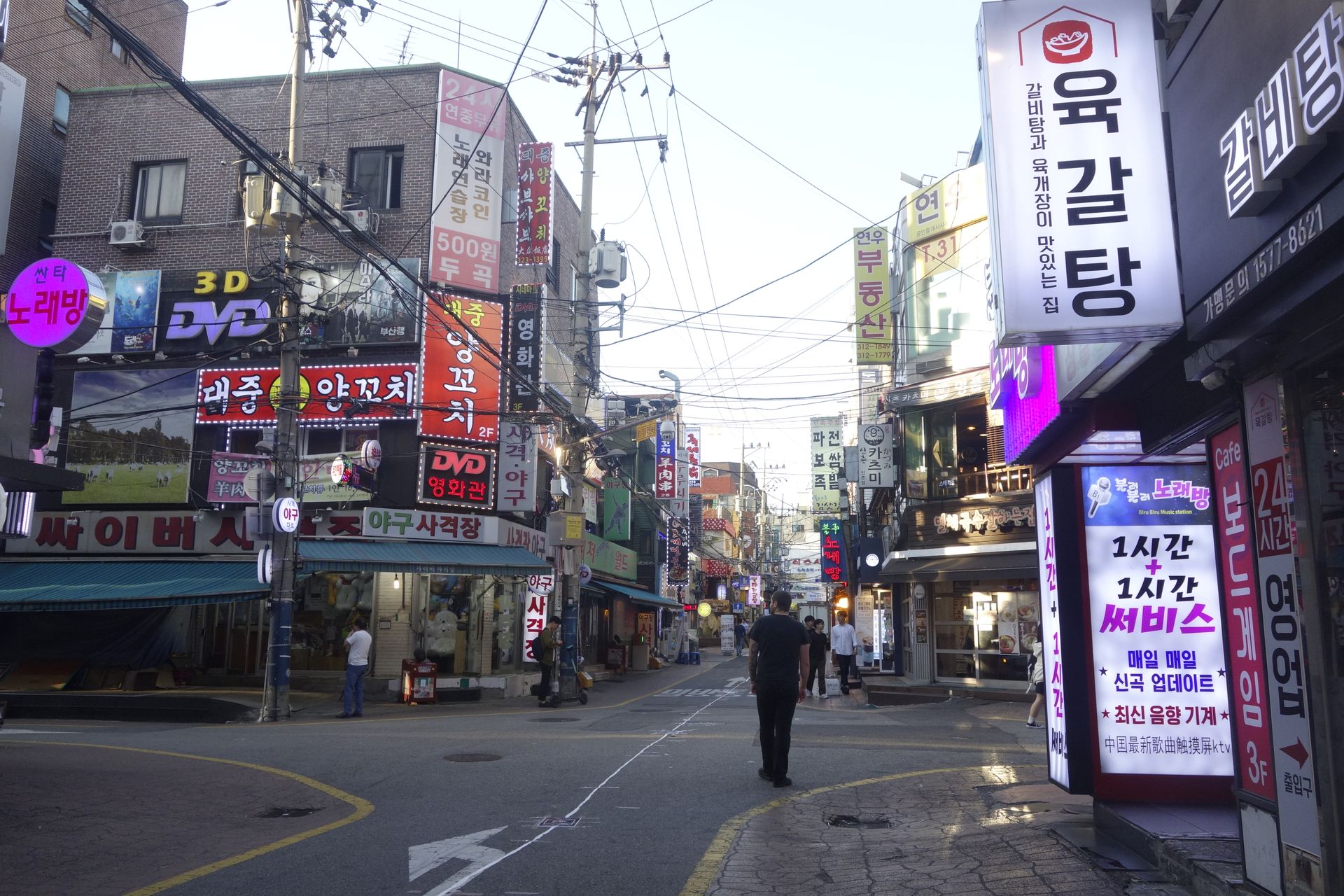
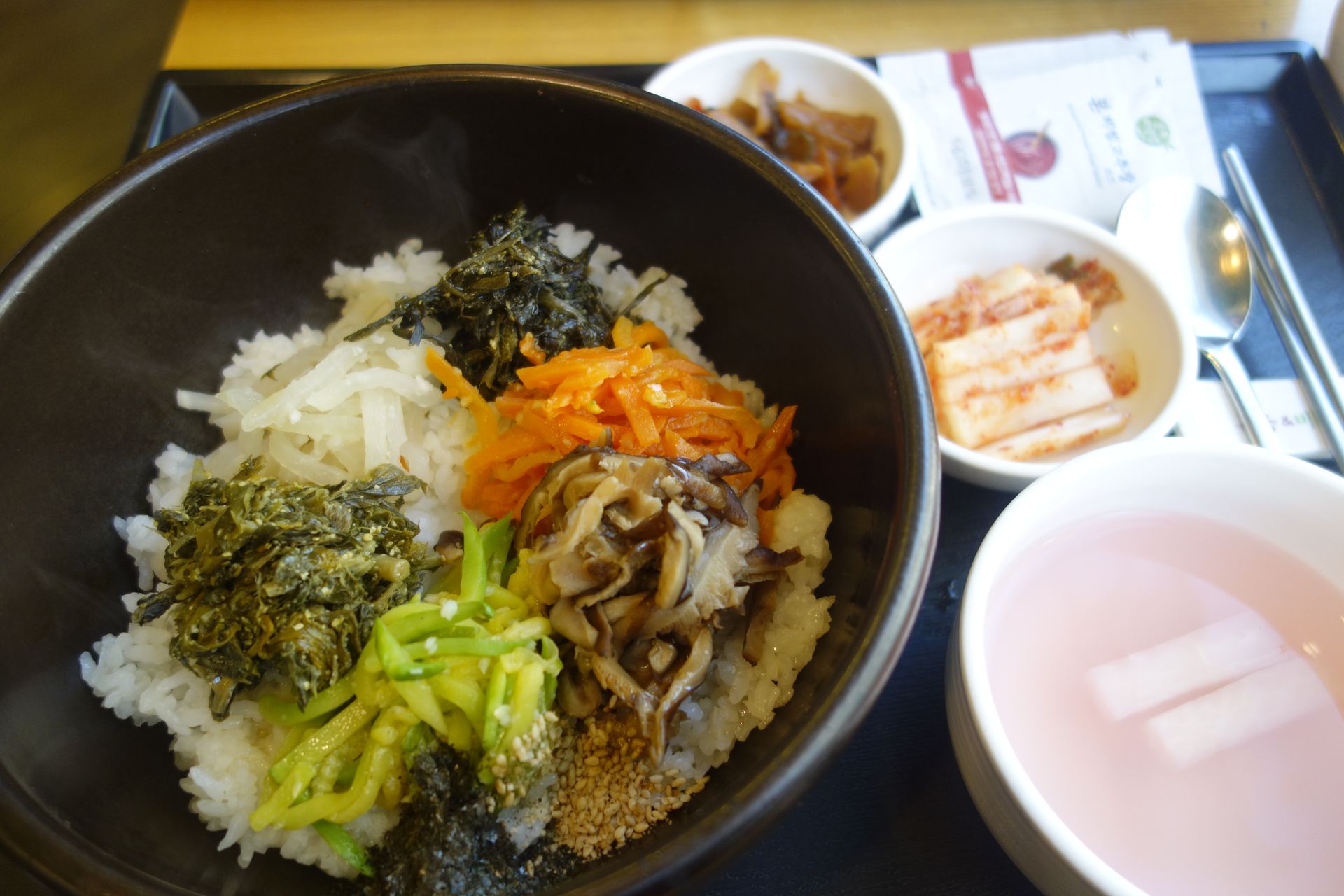
After almost a year in Australia (a bit longer than originally planned), we were very excited to set foot on our favorite continent again, in a region we had never been to before. We both had no real idea of what to expect in South Korea, somehow it is a country that you don't hear about as often as the other countries in East Asia.
From Incheon Airport, it took us a little over an hour to get to our accommodation in Seoul. Everything is very well connected by the world's longest metro system, although at transfer stations you often have to take what feels like a kilometer-long underground walk. Quite tired from the furthest flight we've ever had, we had to take a break before diving into our first bibimbap meal.
On our first little walk, we knew right away that this is a city that we will like. There are so many things to discover. Small winding alleys, big streets, and almost something going on everywhere, but not so much that you constantly feel like you're drowning in a huge crowd. As different as every country in Asia is, there are just a few commonalities, like the food culture, which also plays a very central role here. On every street, you can find endless possibilities to eat something fantastic. That's enough about our first impression... we are very happy to be here.


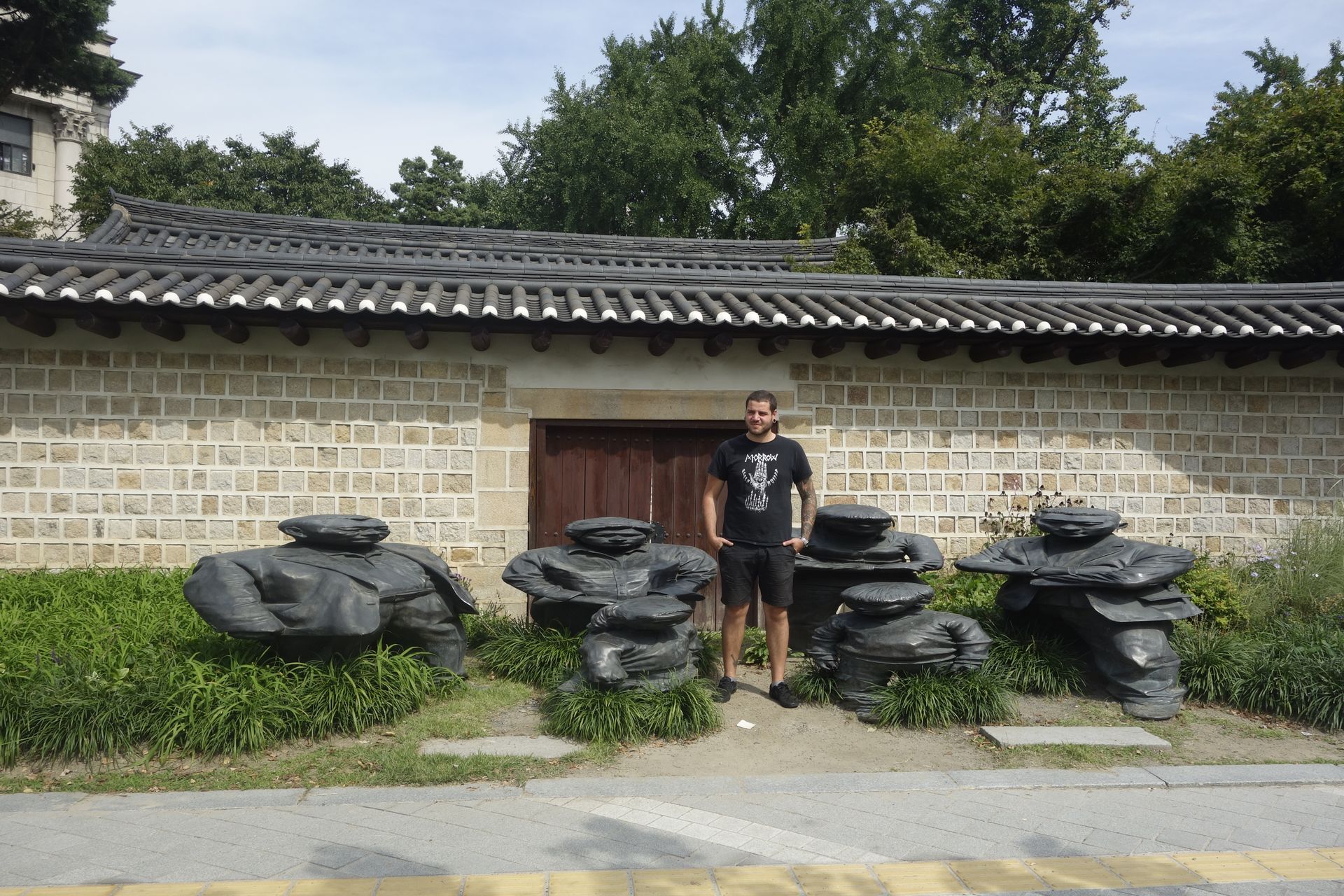
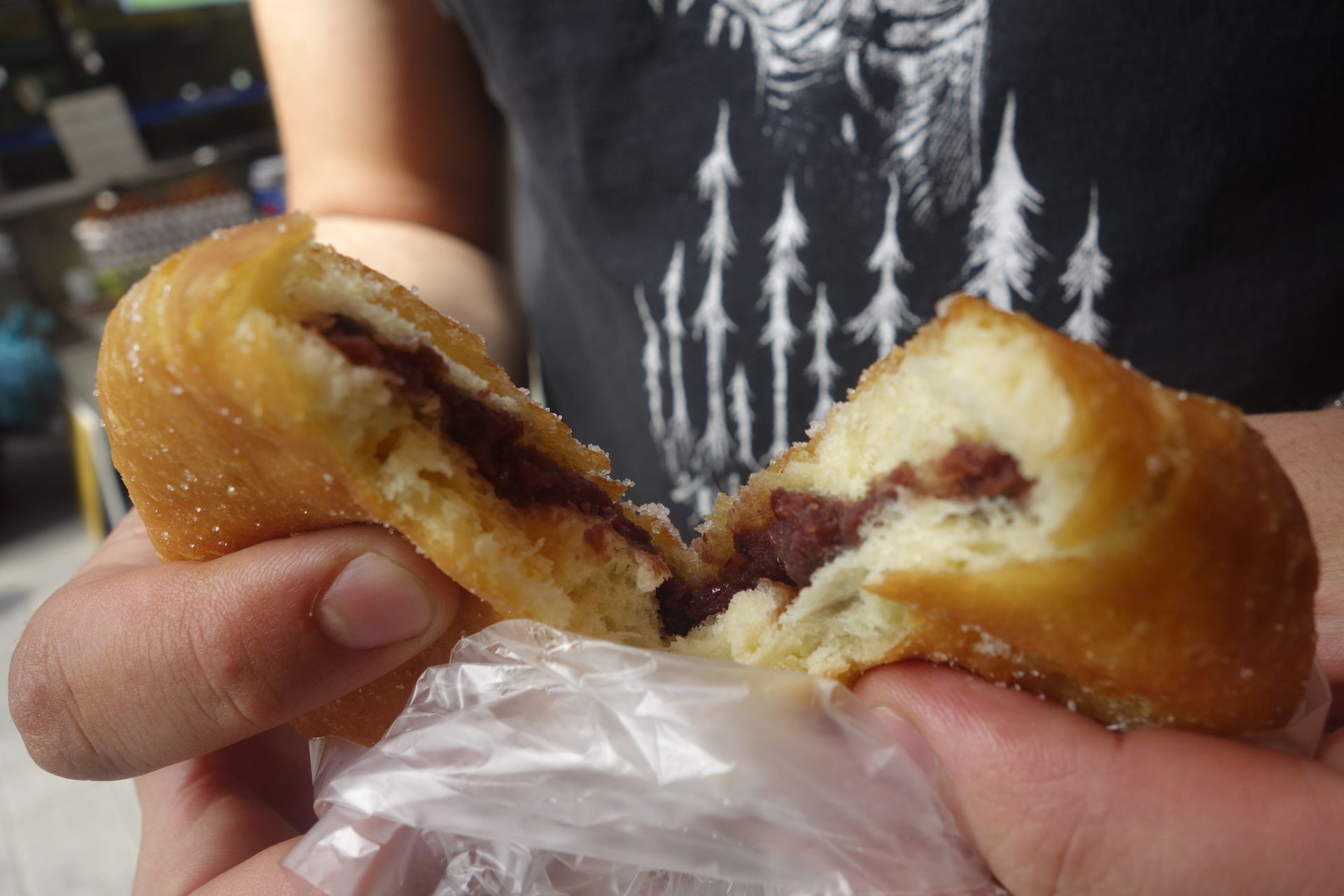
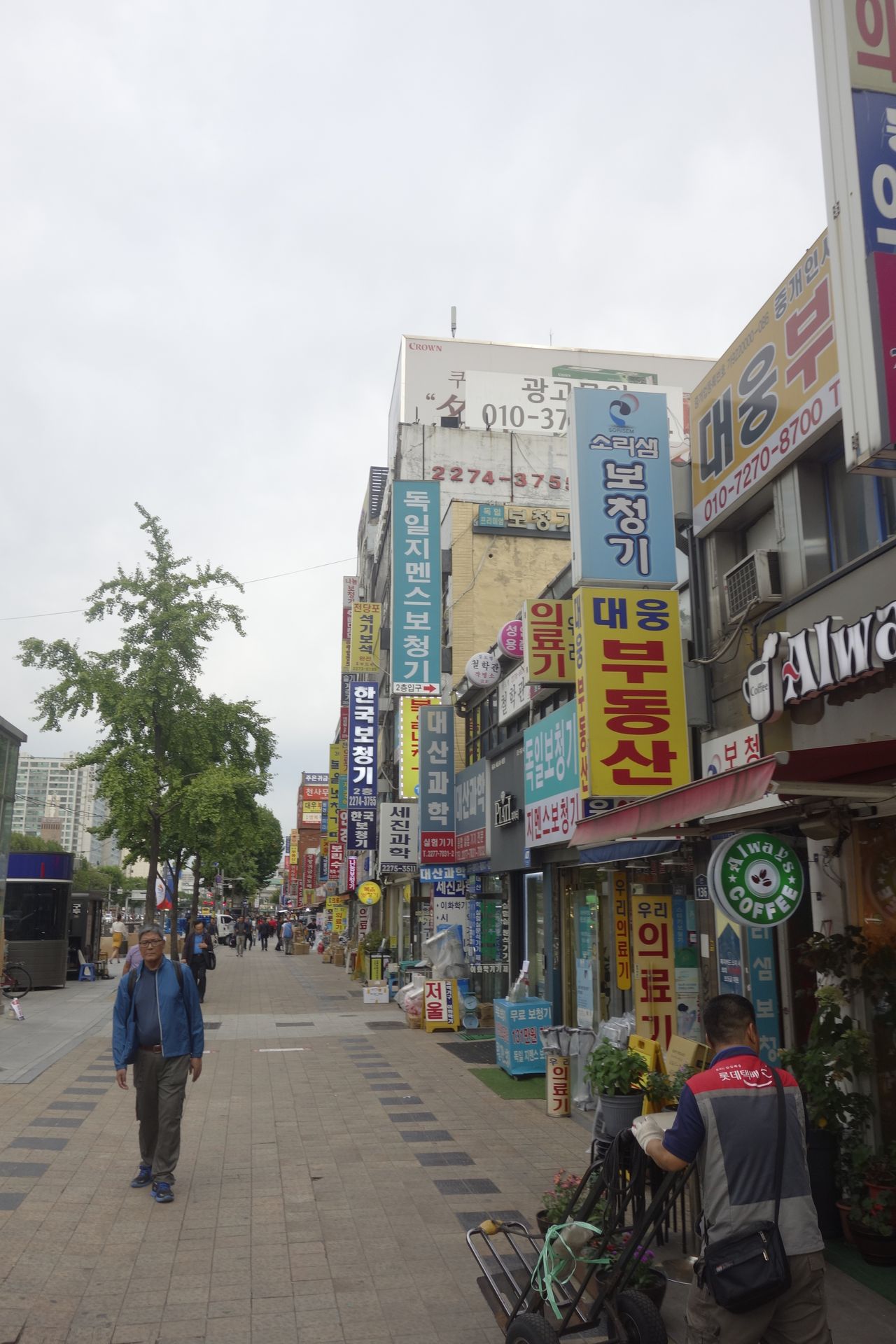
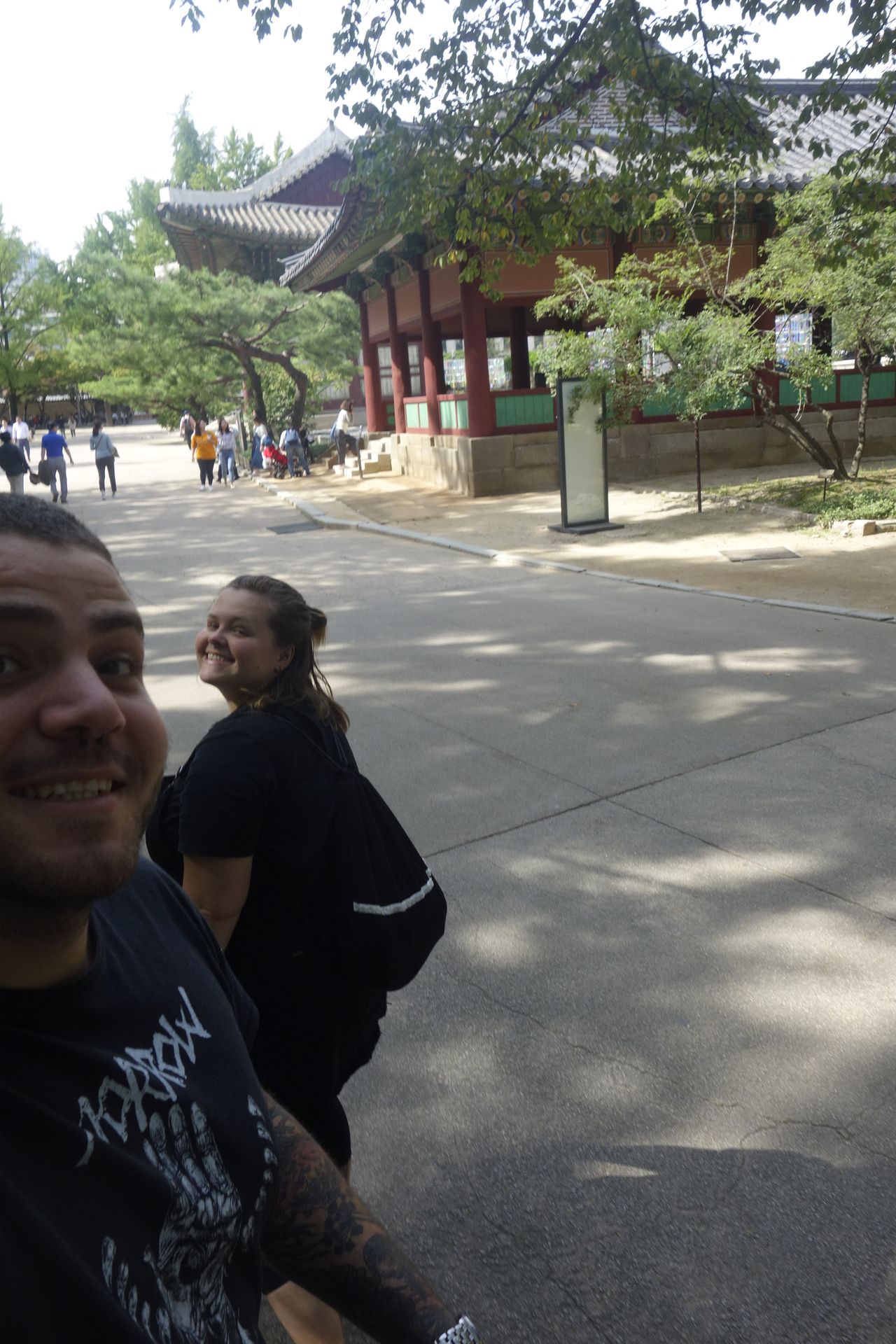
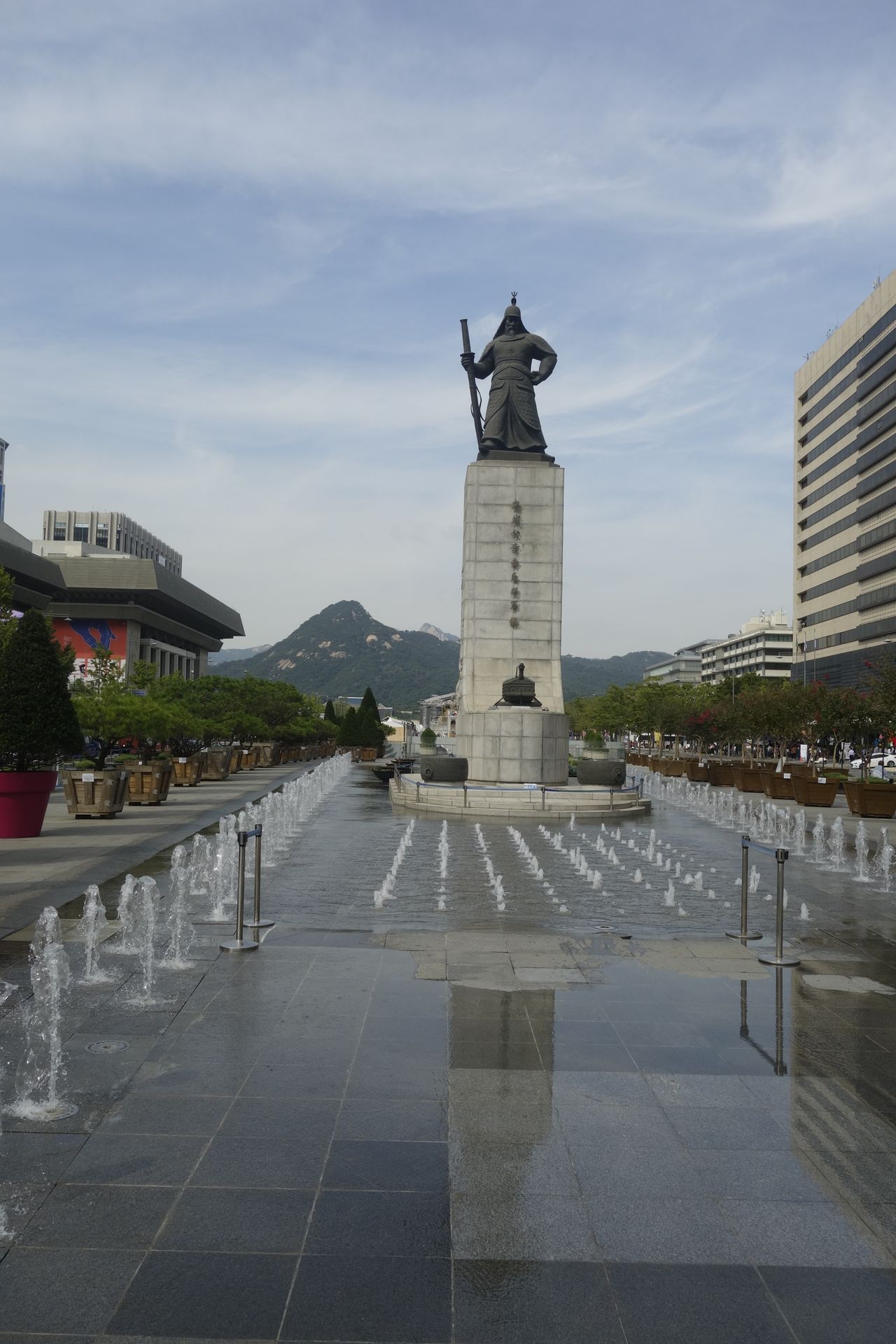


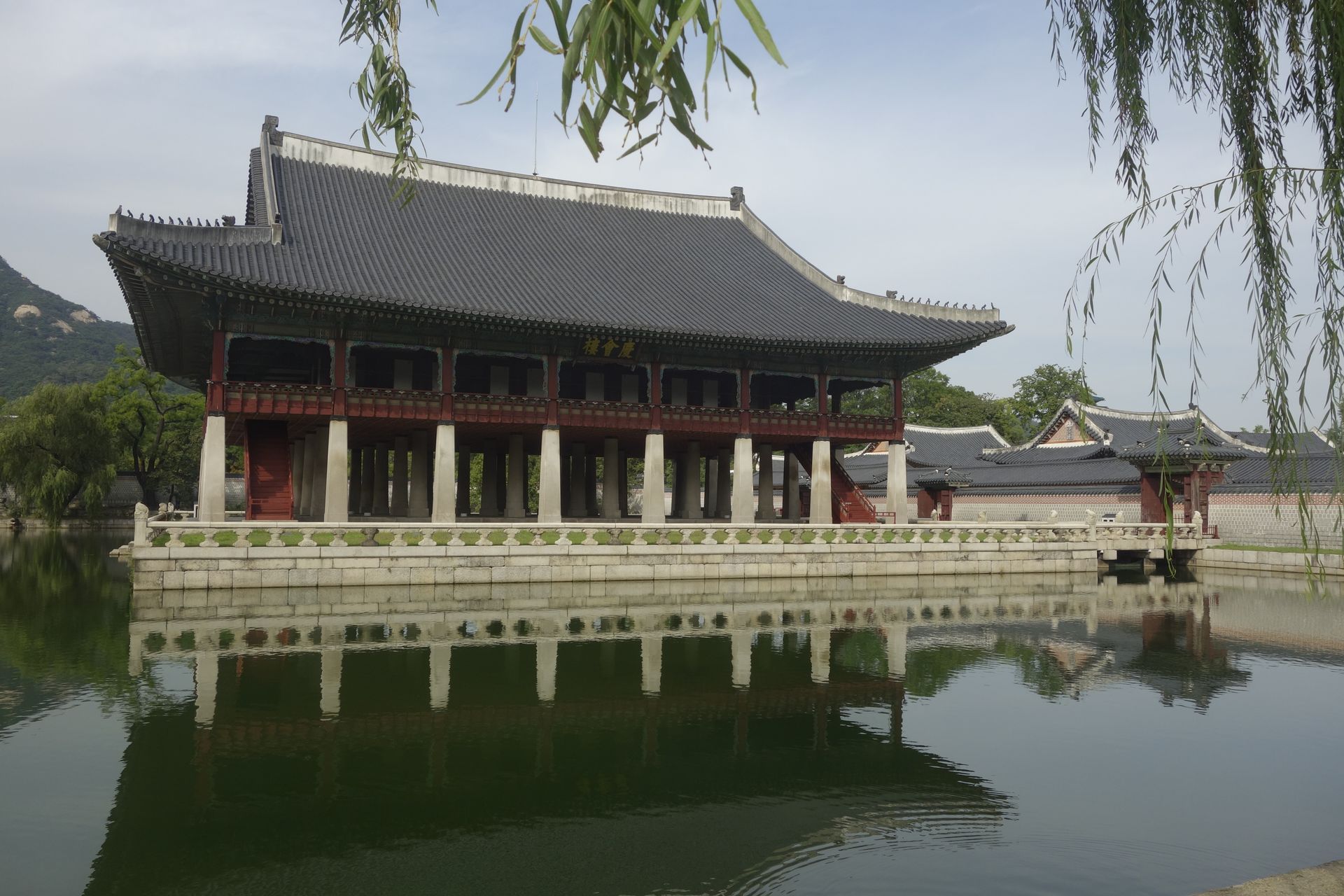


Seoul is a huge city, so we dedicated different days to different areas. On our first full day, we went to the city center to indulge in our first visit to a market, one of our favorite activities. We were not disappointed by Namdaemun Market either. After that, we did a bit of palace hopping in the center. A lucky coincidence that we didn't know about before is that every last Wednesday of the month is "Culture Day". Since that was exactly that day, it meant that we got free admission to all the palaces. First, we visited the relatively manageable Deoksung Palace. The unique thing about this one is that alongside buildings in the splendid Korean style, there are also a few buildings in Western style, a result of the imperial fascination with Western architecture. Secondly, we visited the much more extensive Gyeongbokgung Palace, which is completely traditional Korean style, a style that is very colorful and contains a beautiful mixture of embellishment and straight lines. On the palace grounds, you can also find a recreation of a traditional Korean village, including vegetable beds. In various places, you could watch actors performing "palace tasks", so we were able to witness a guard exchange at the entrance gate. In addition, many visitors were dressed in festive Korean traditional costumes, which can be rented in several shops in the area. After walking around all day in the now somewhat unusual intense heat, Mathias started getting a headache and we made our way back home.


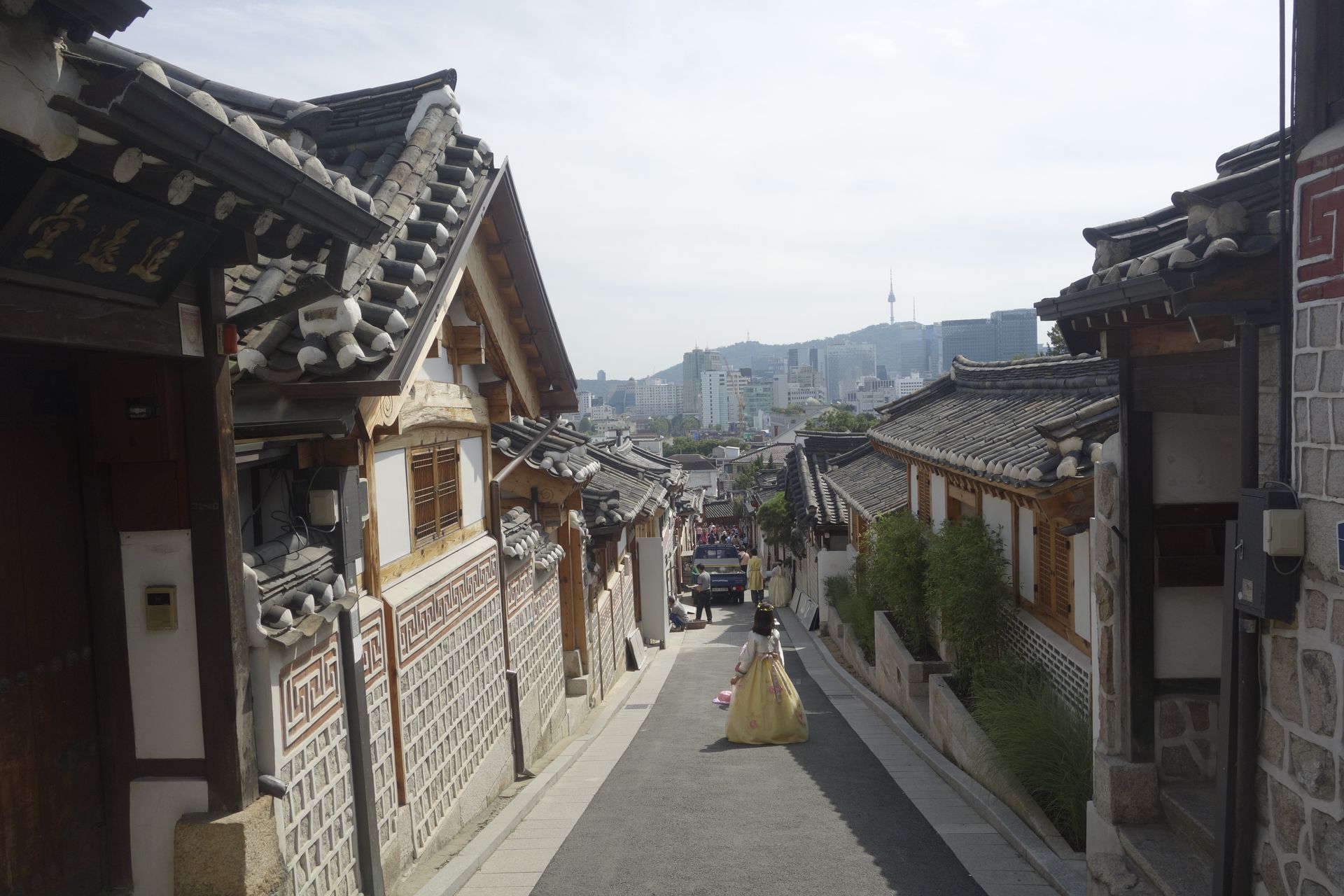
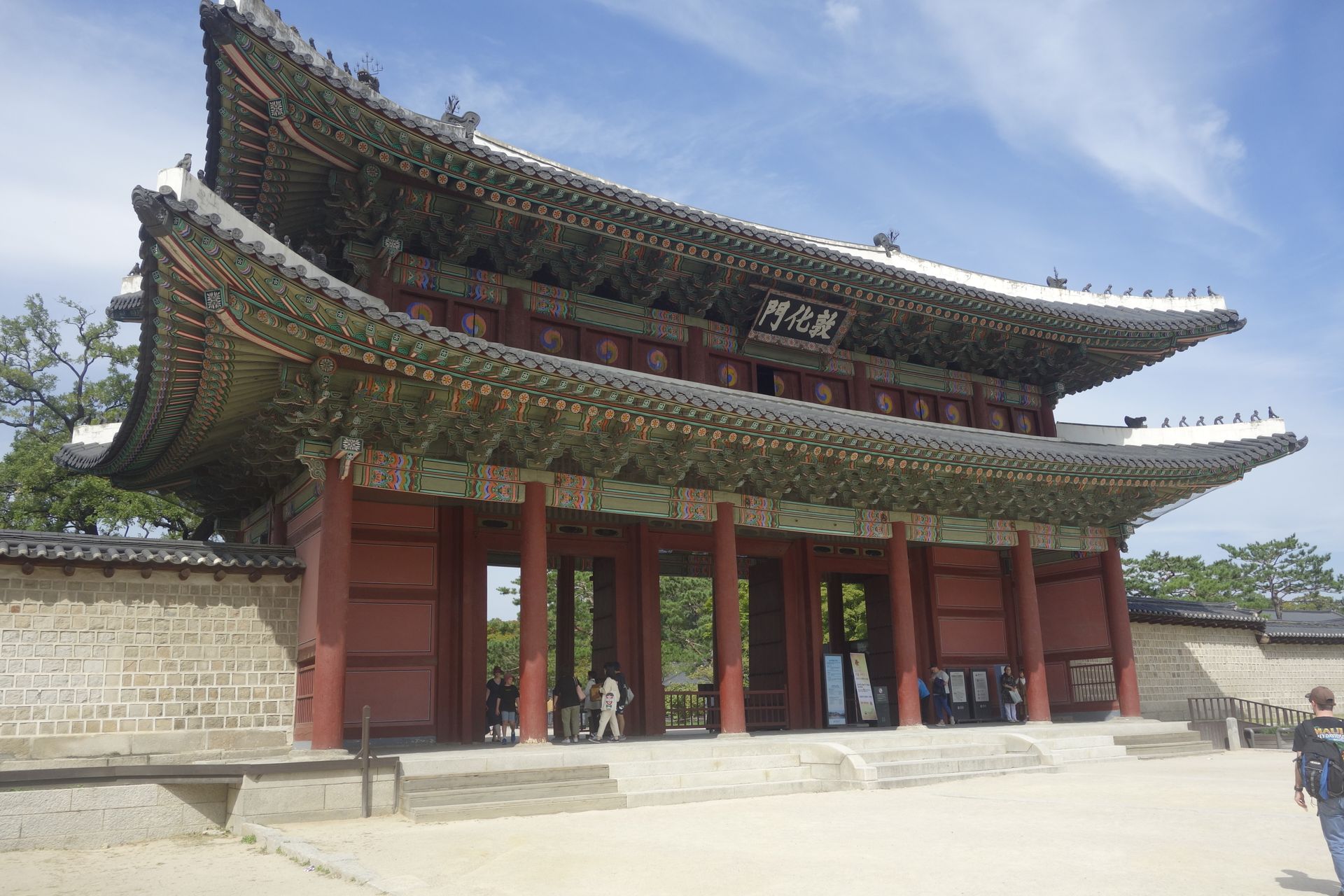
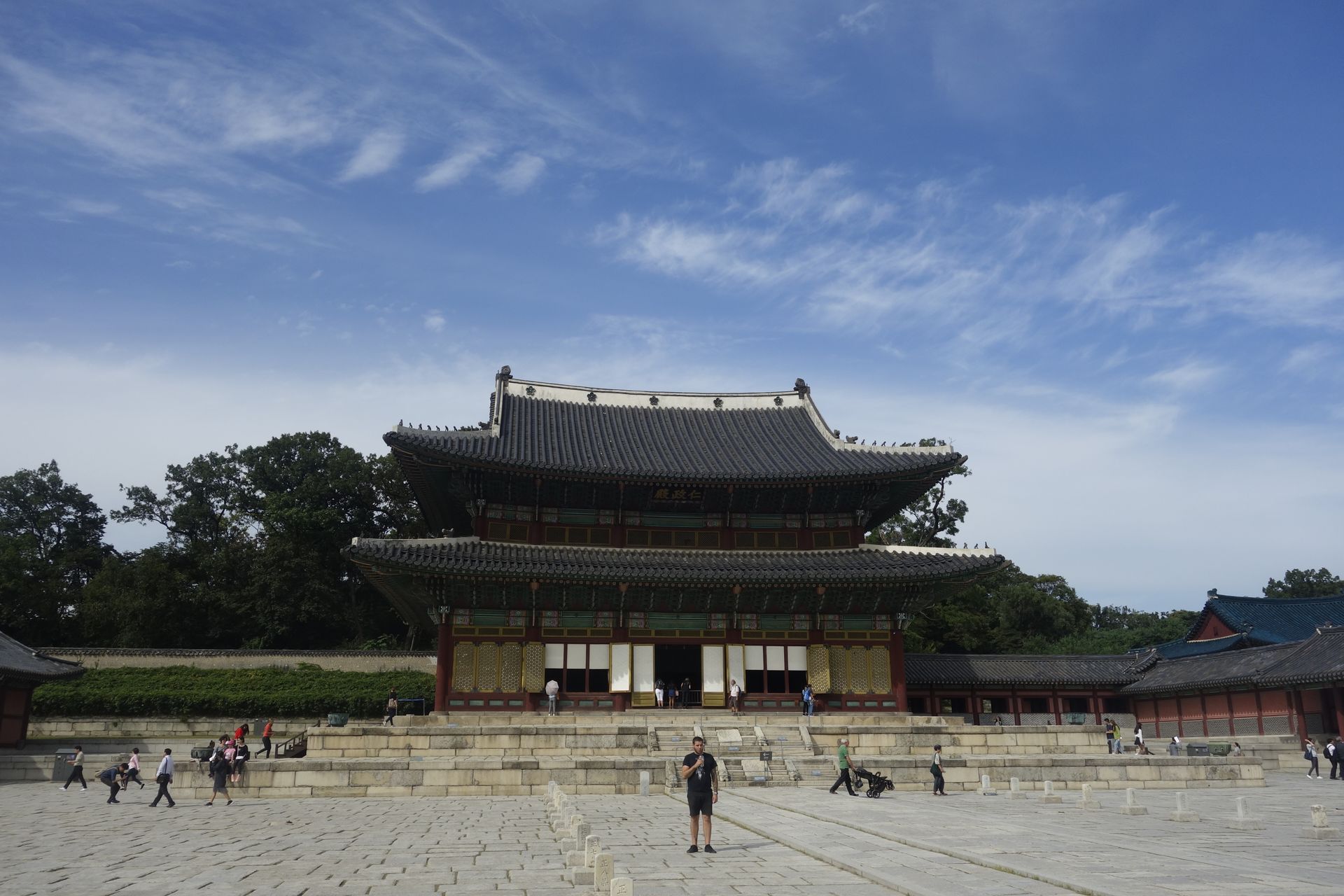

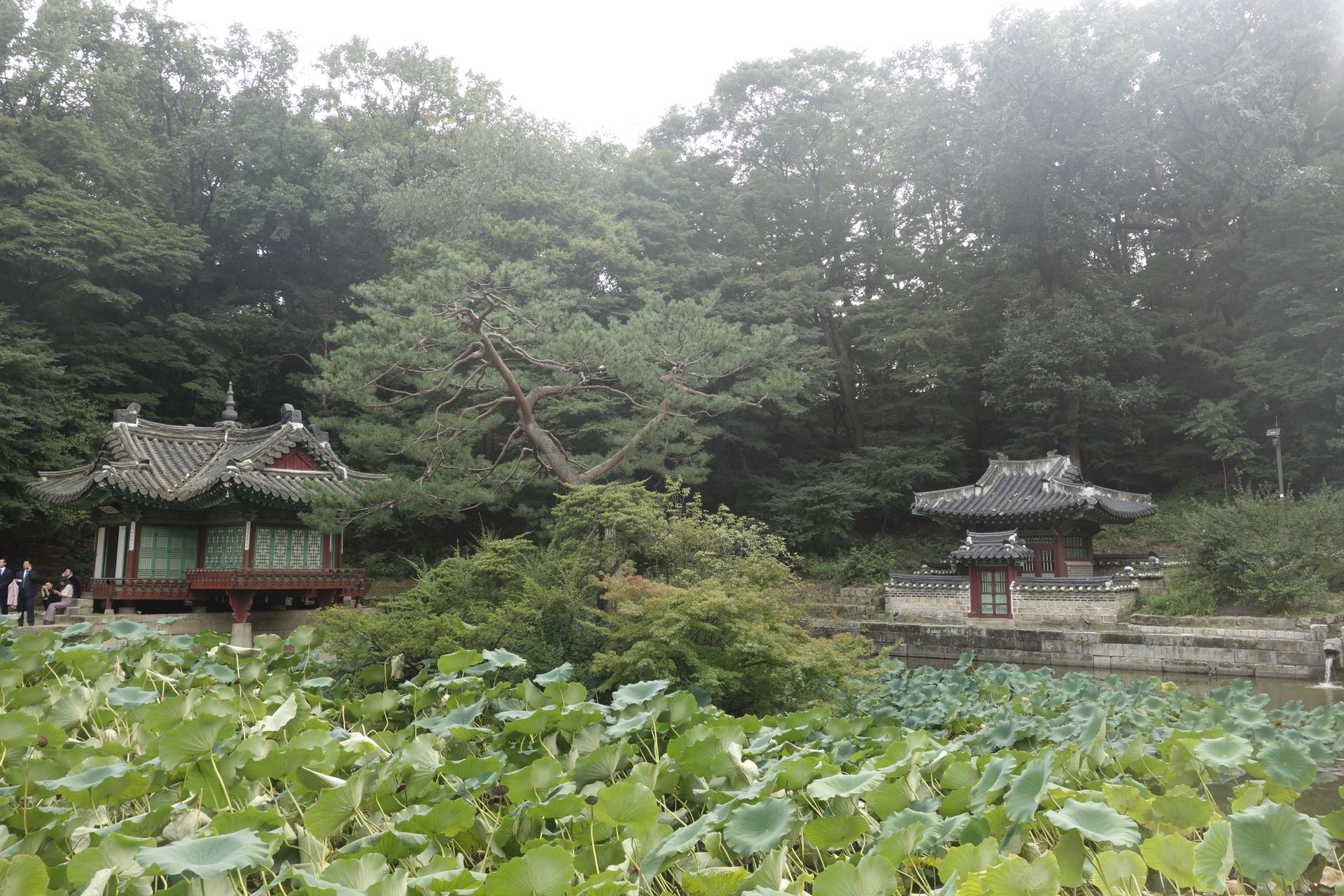
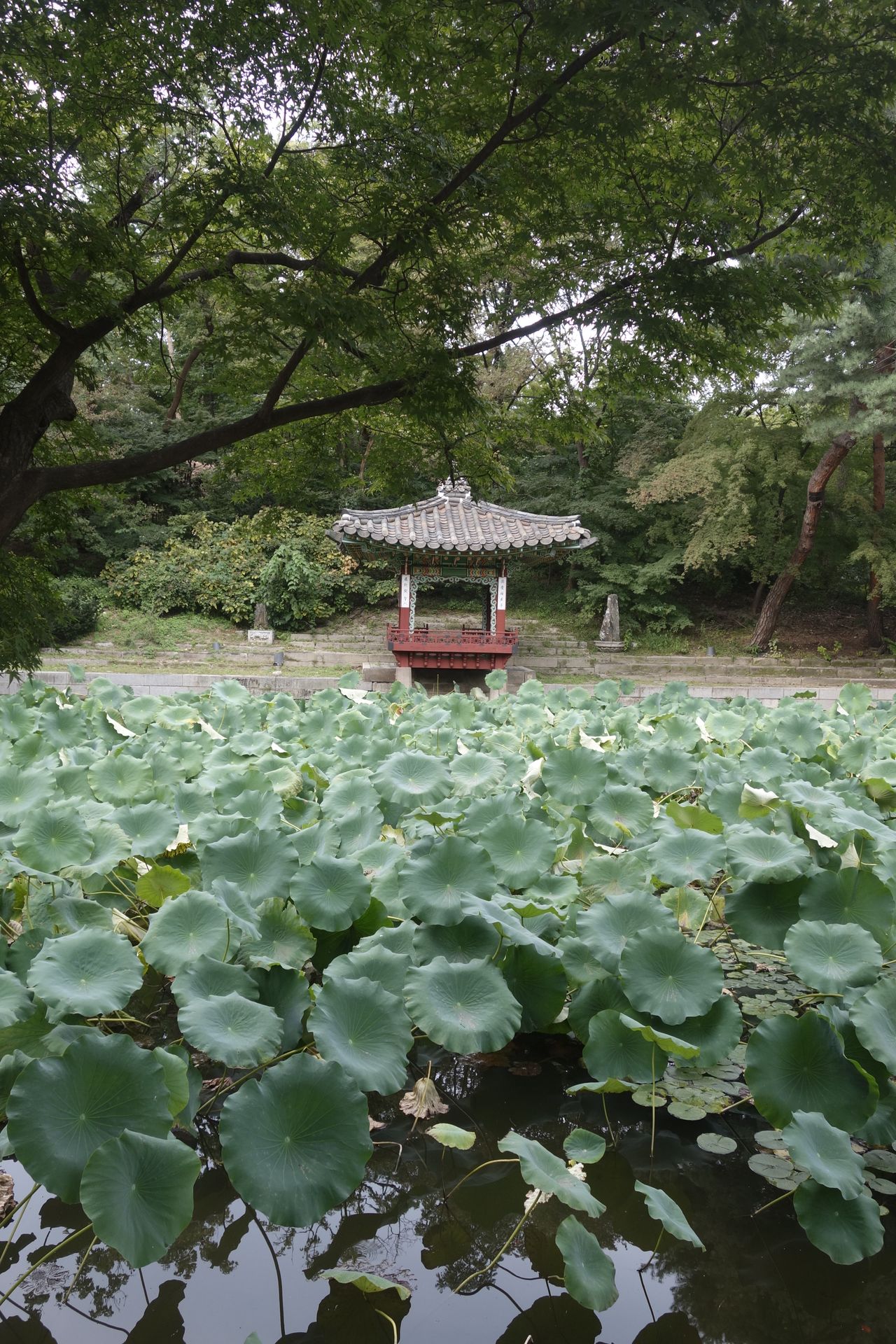
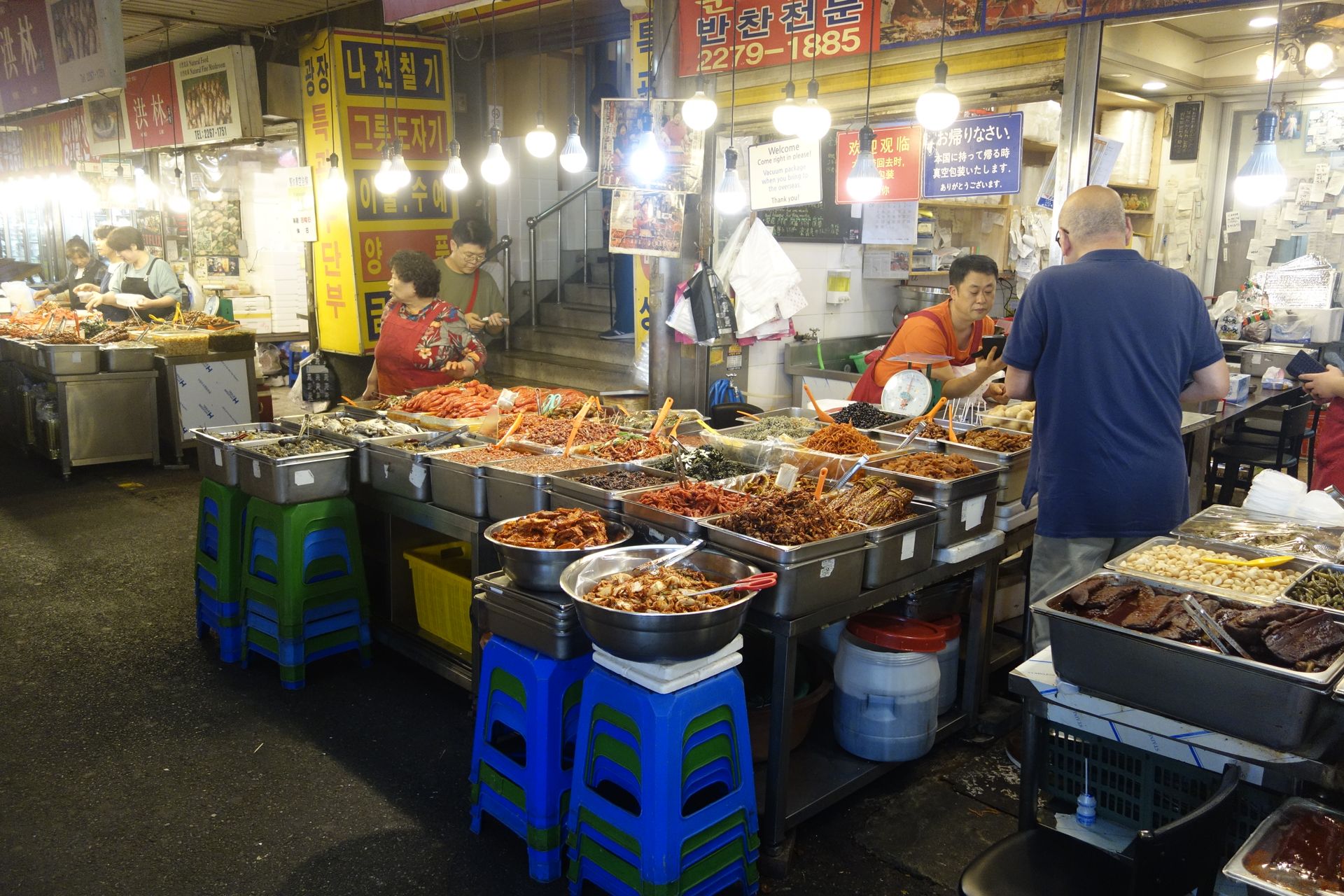


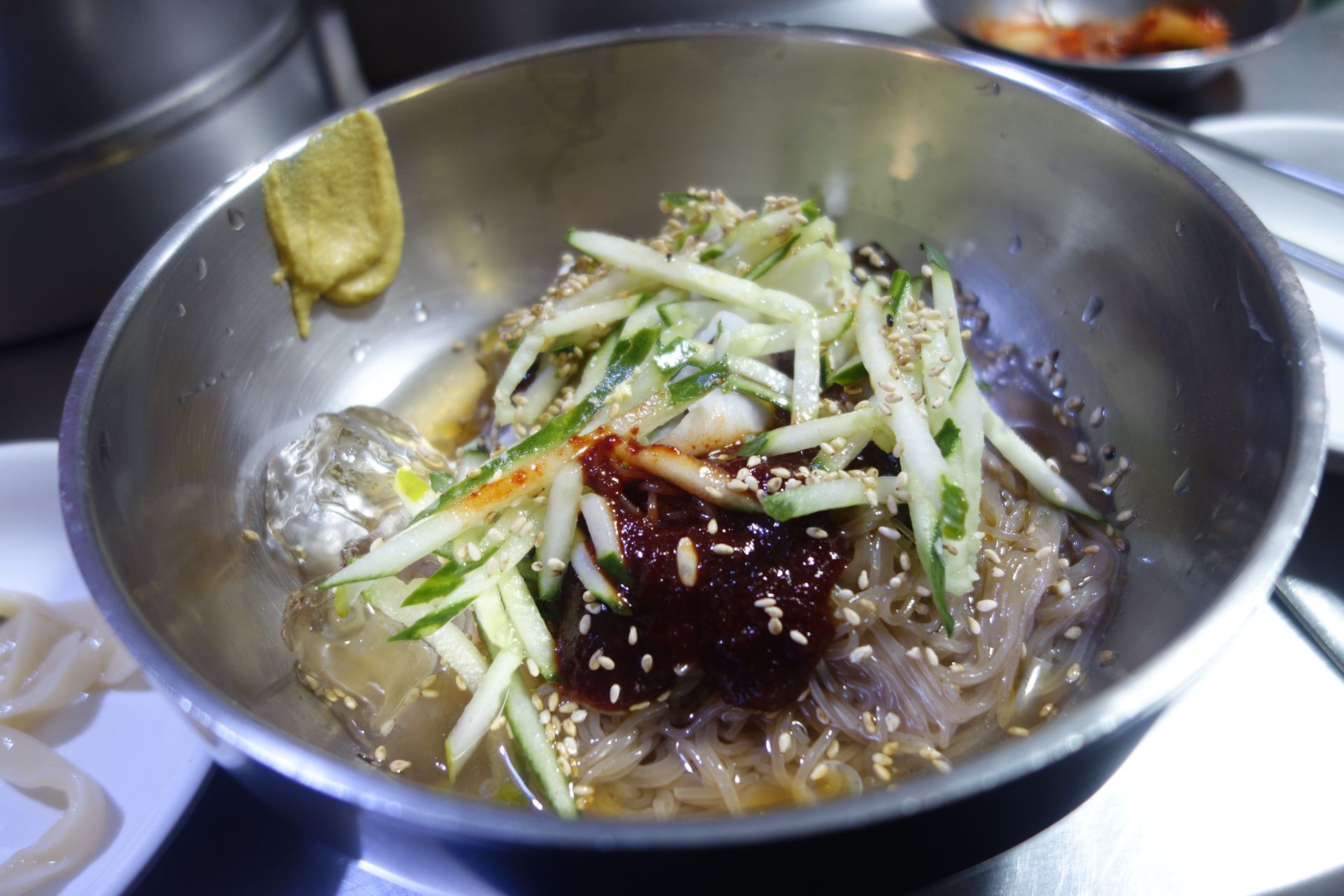
The next day, we took it a bit easier. Lea had a hairdresser appointment and then we explored the student district of Hongdae.


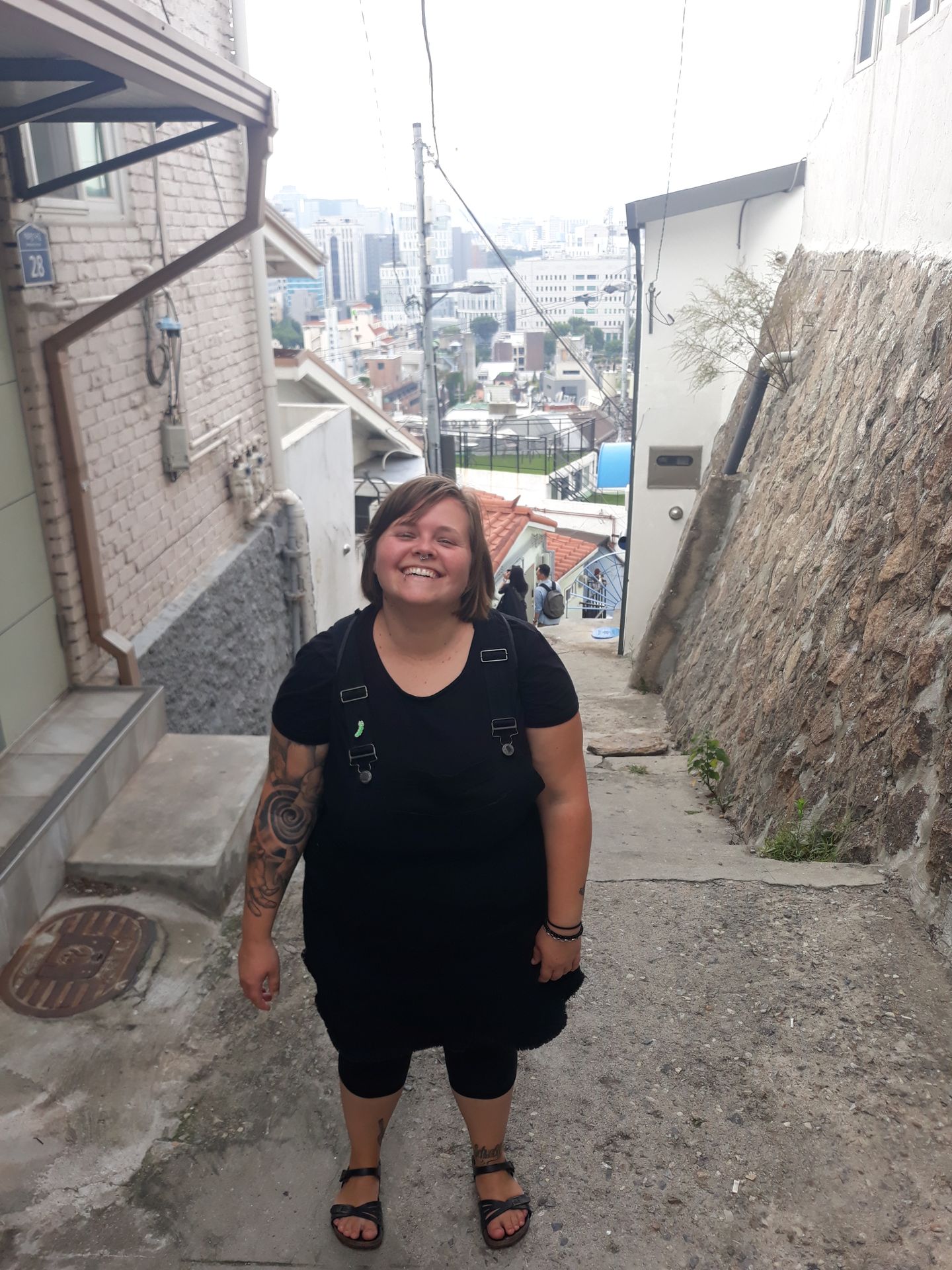
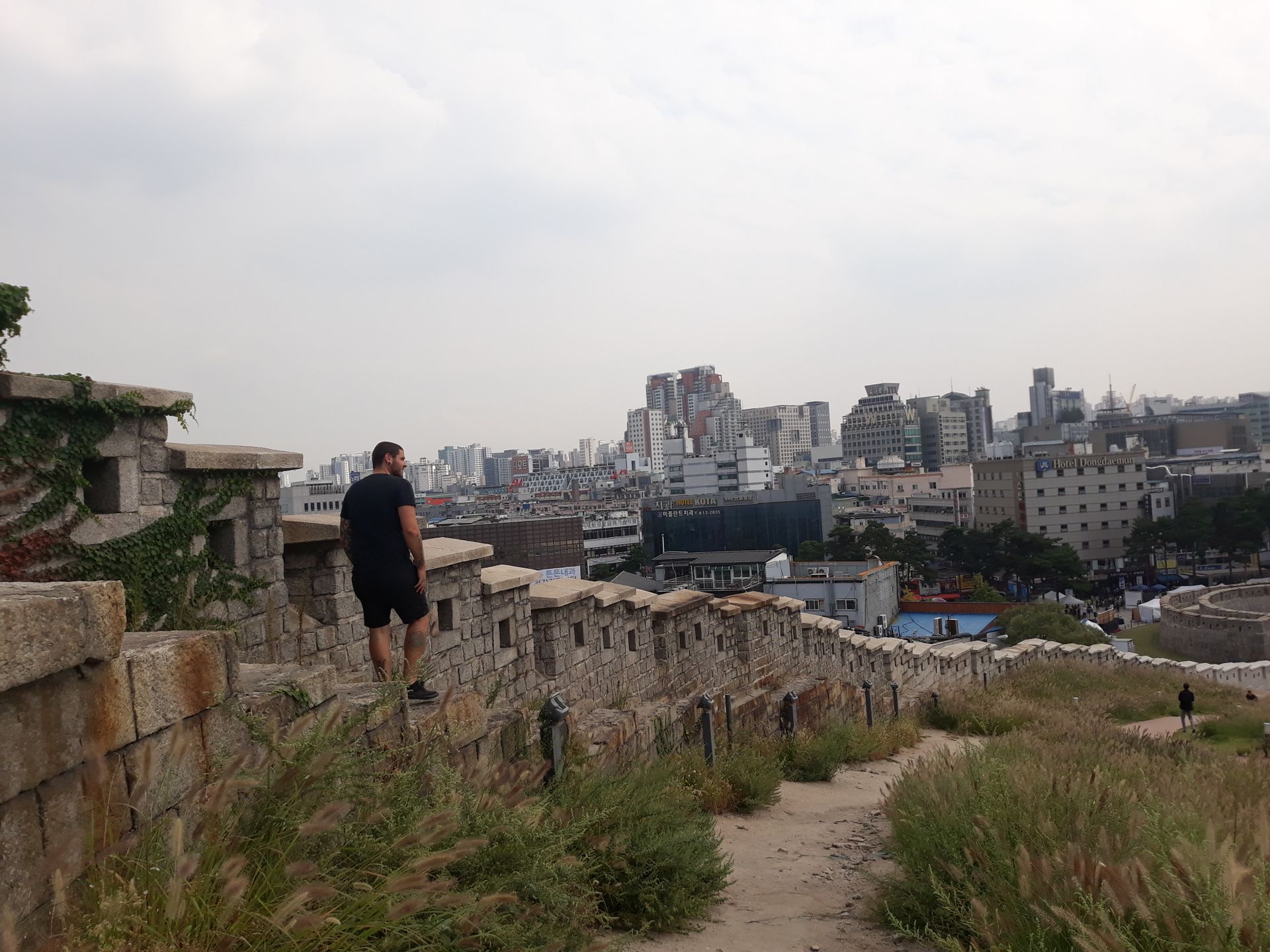


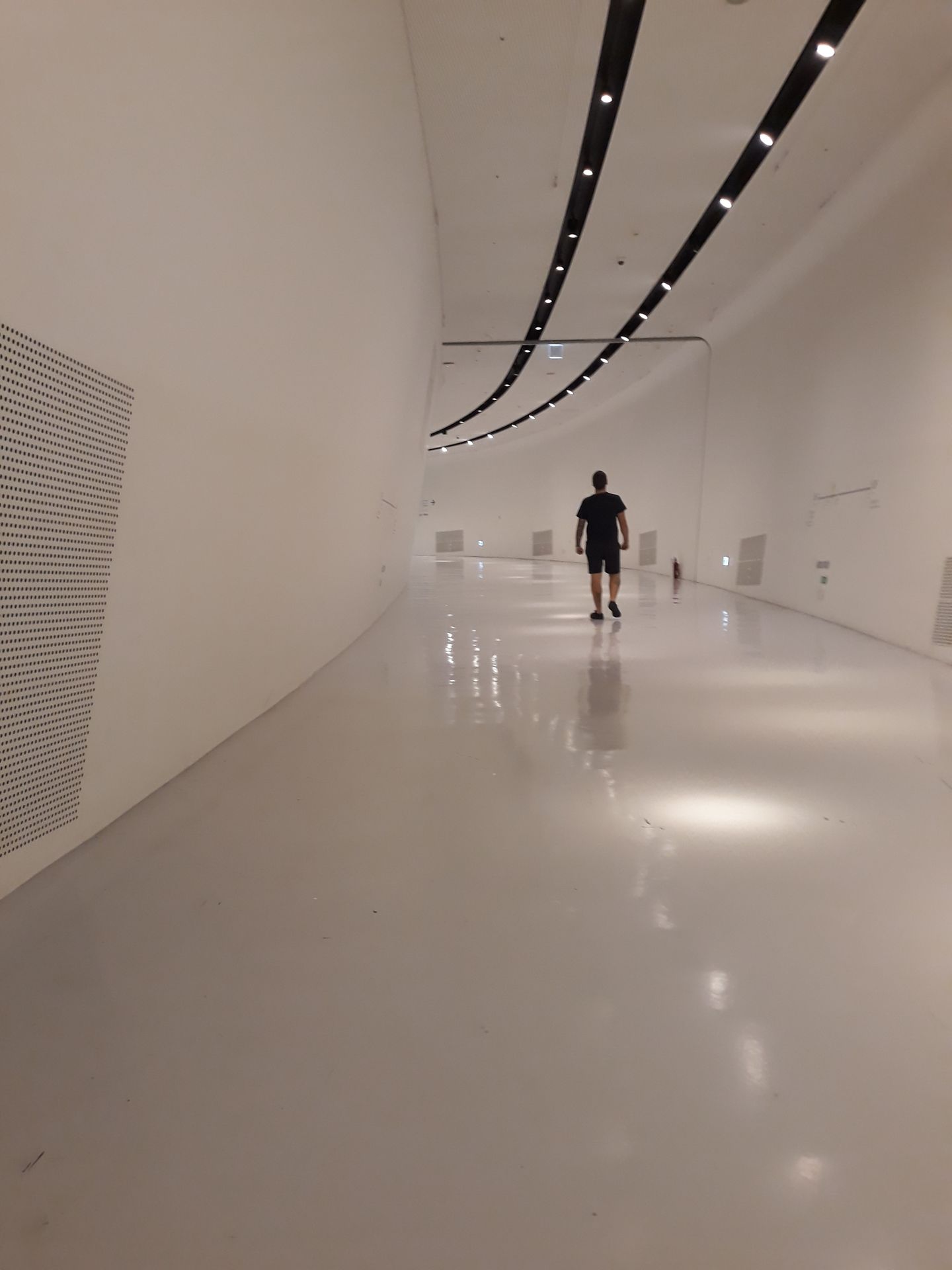
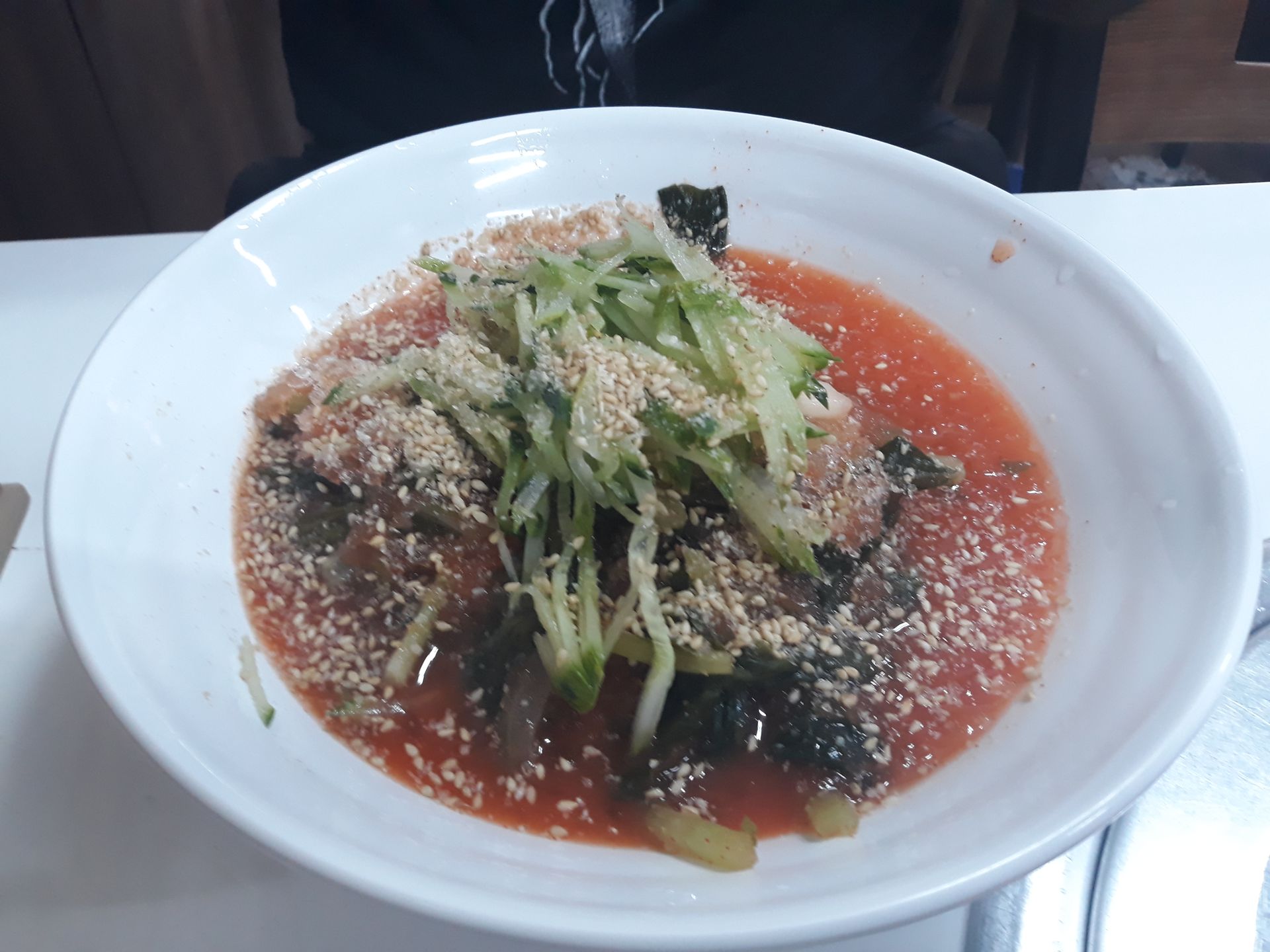
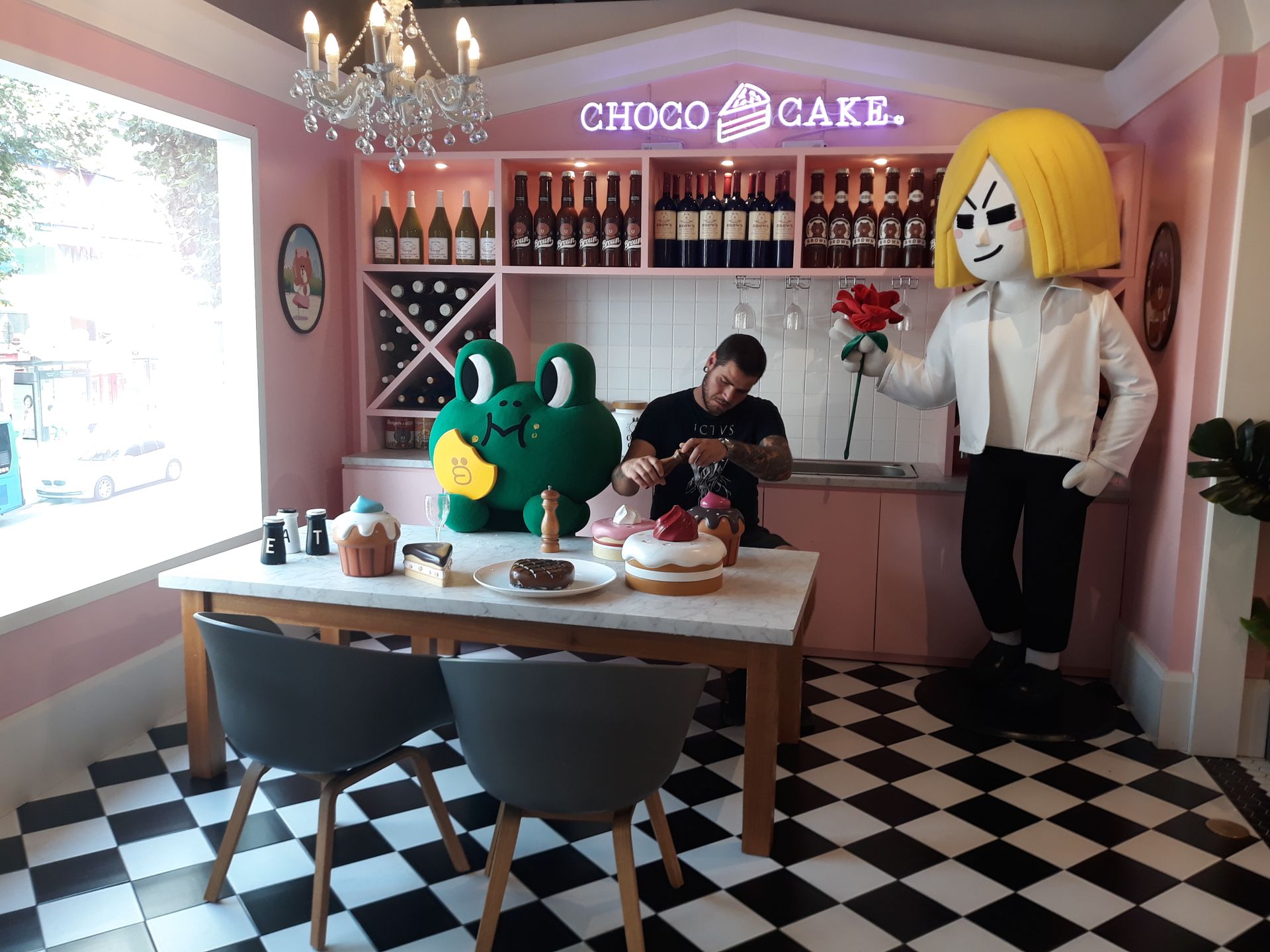
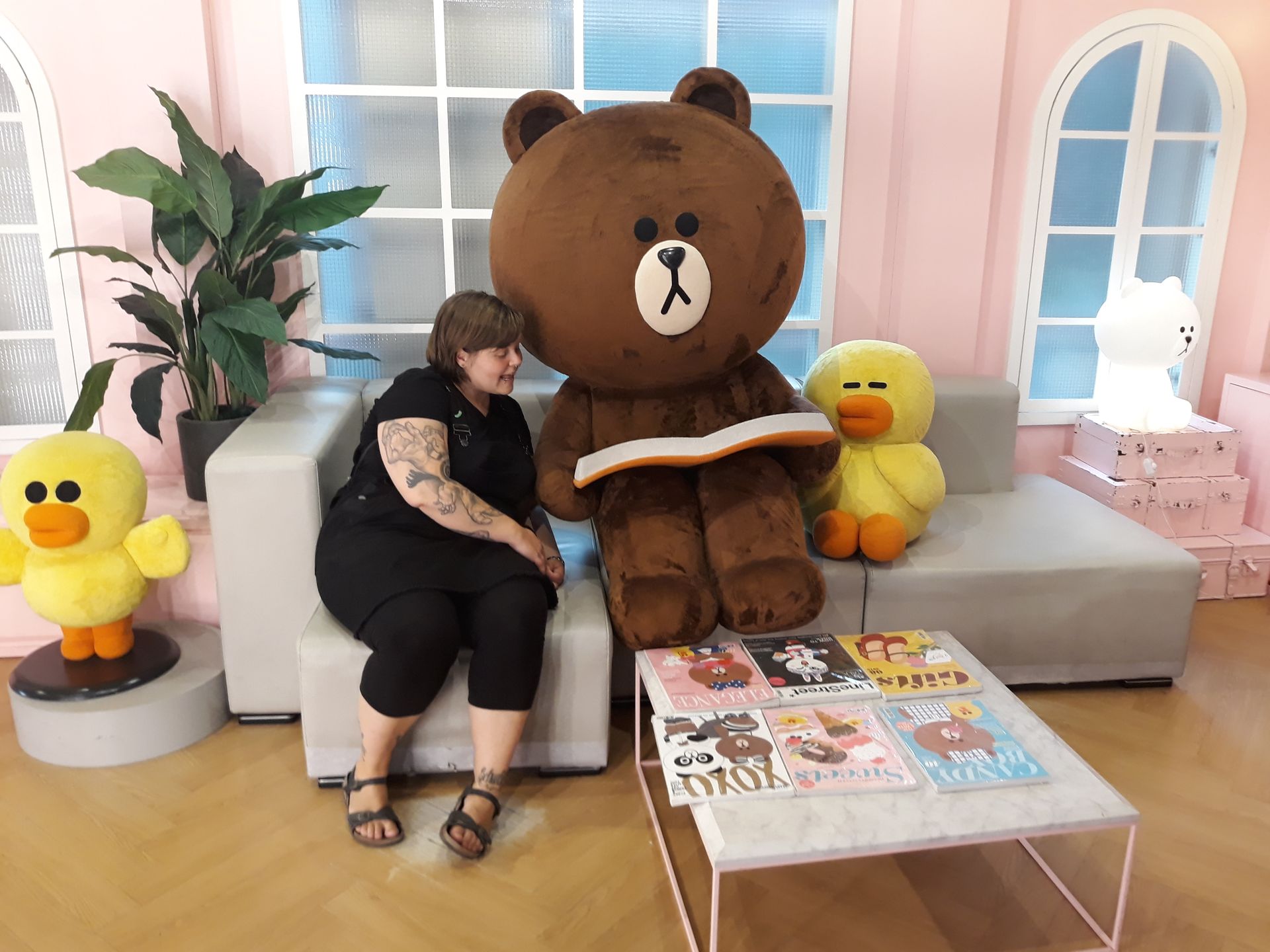
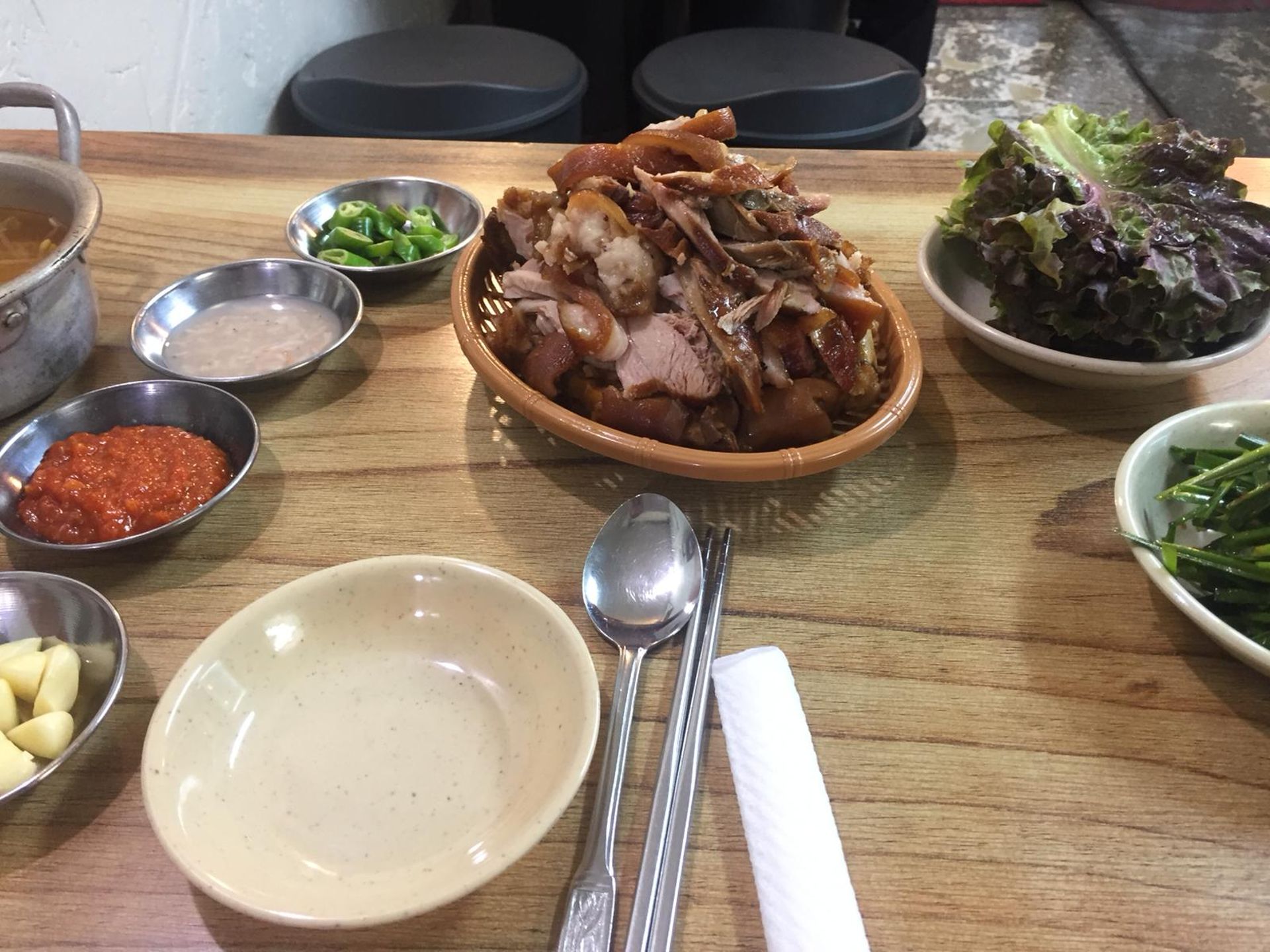
On the following day, we planned for more walking. First, we briefly visited the well-designed Dongdaemun History & Culture Park but didn't feel like paying admission to one of the countless design exhibitions. So we had lunch at the adjacent Dongdaemun Market before climbing one of the many hills in Seoul to visit Ihwa Mural Village and admire some street art. On the way back down, we were able to walk along the Old City Wall, which is very well preserved at this point.
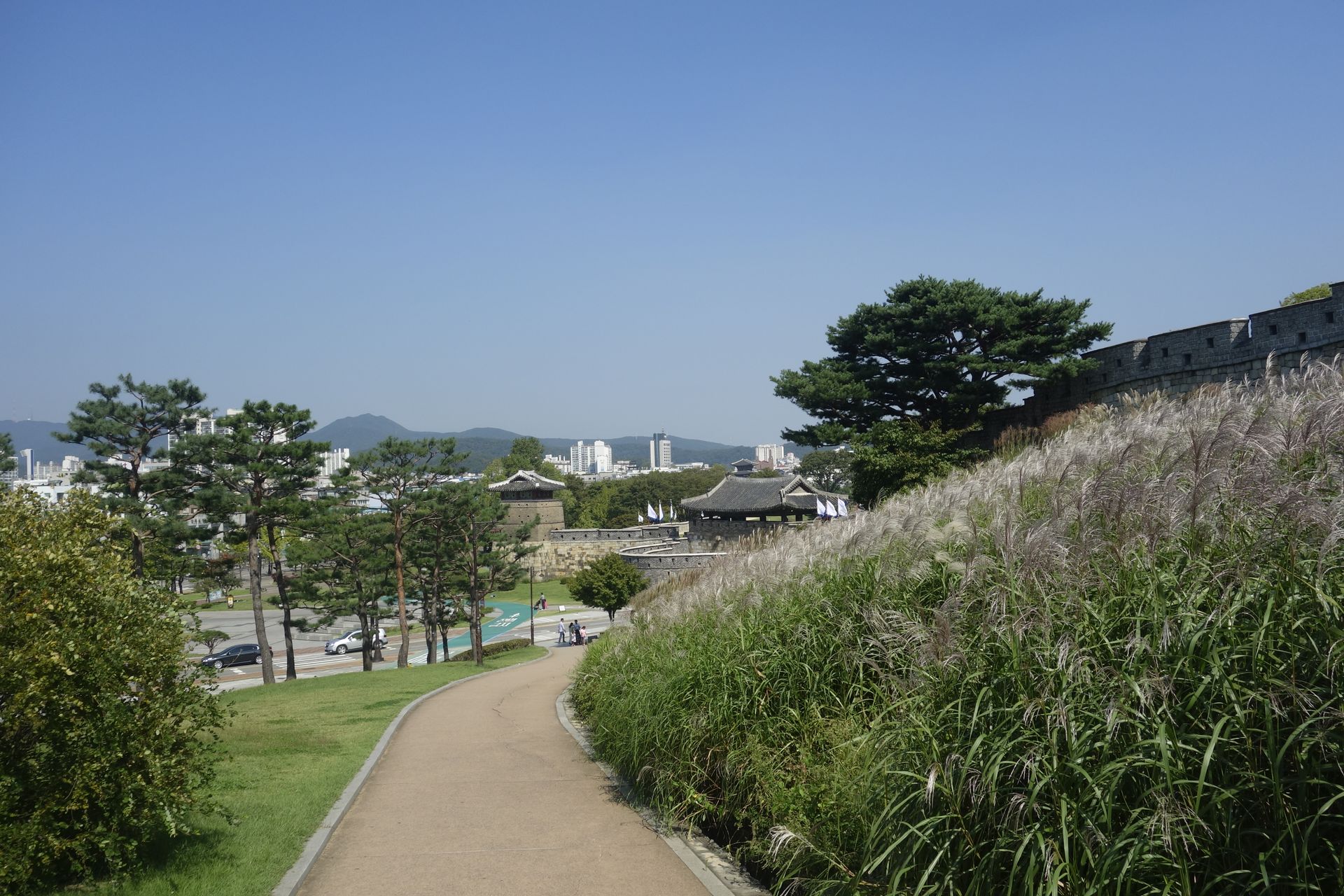

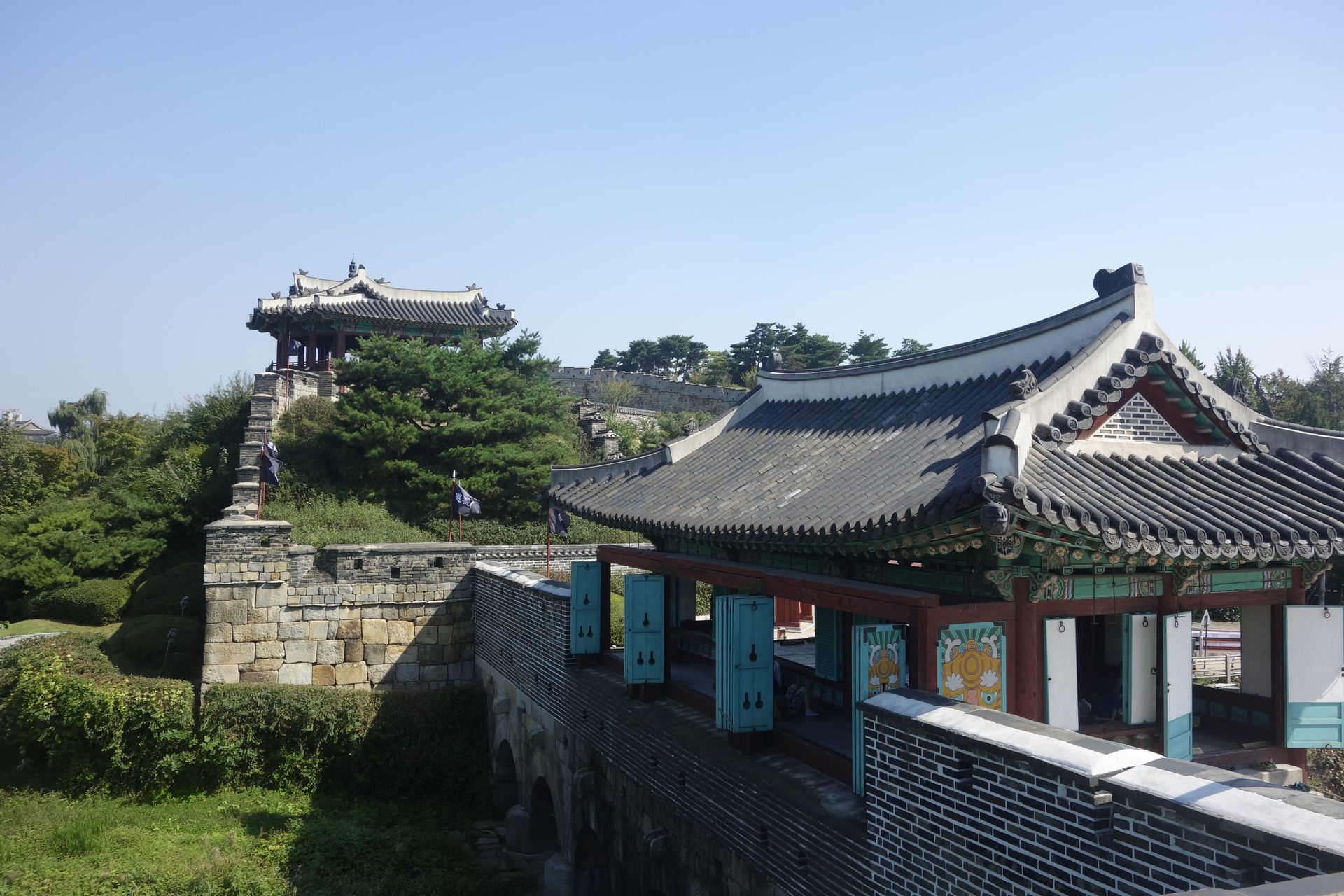
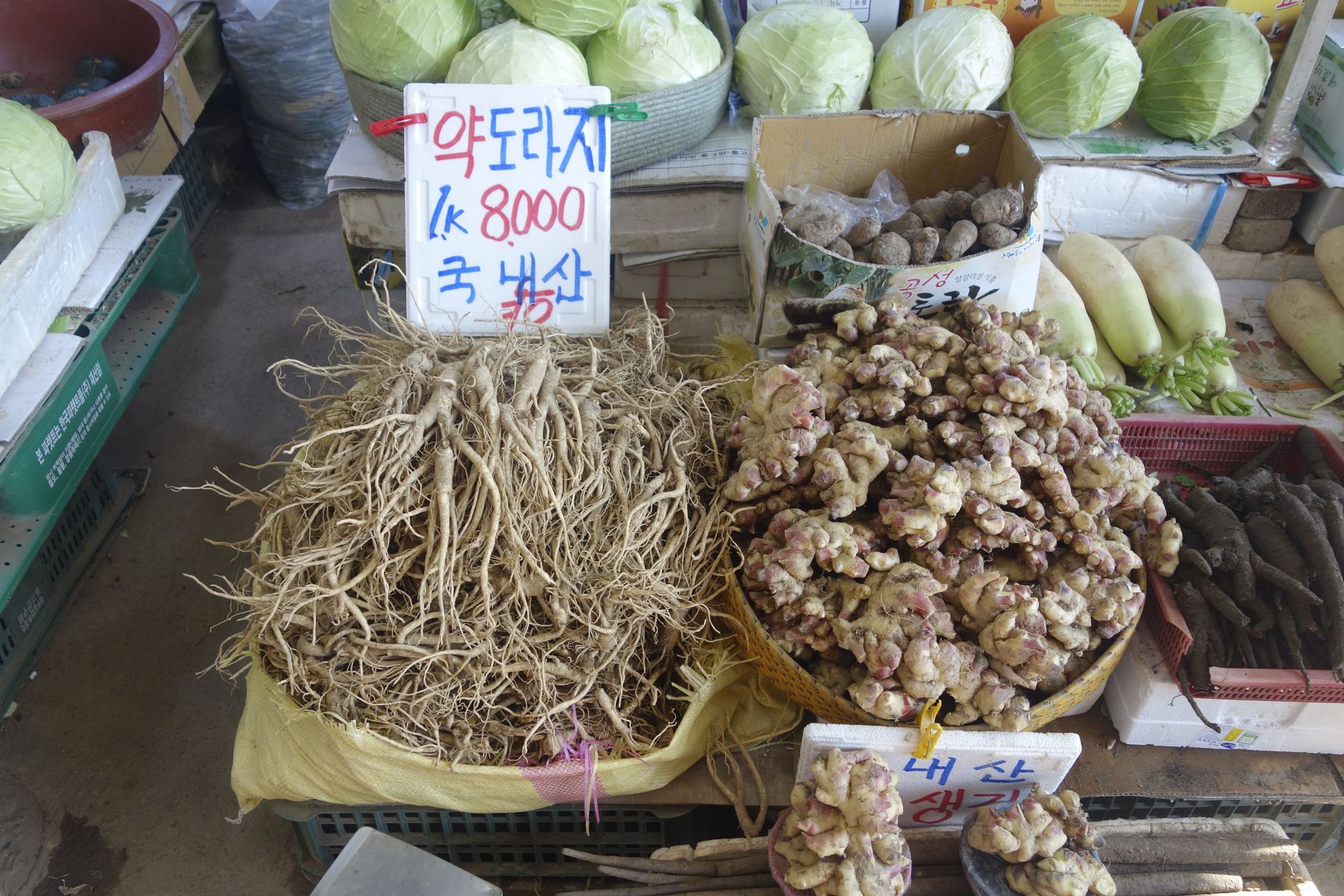
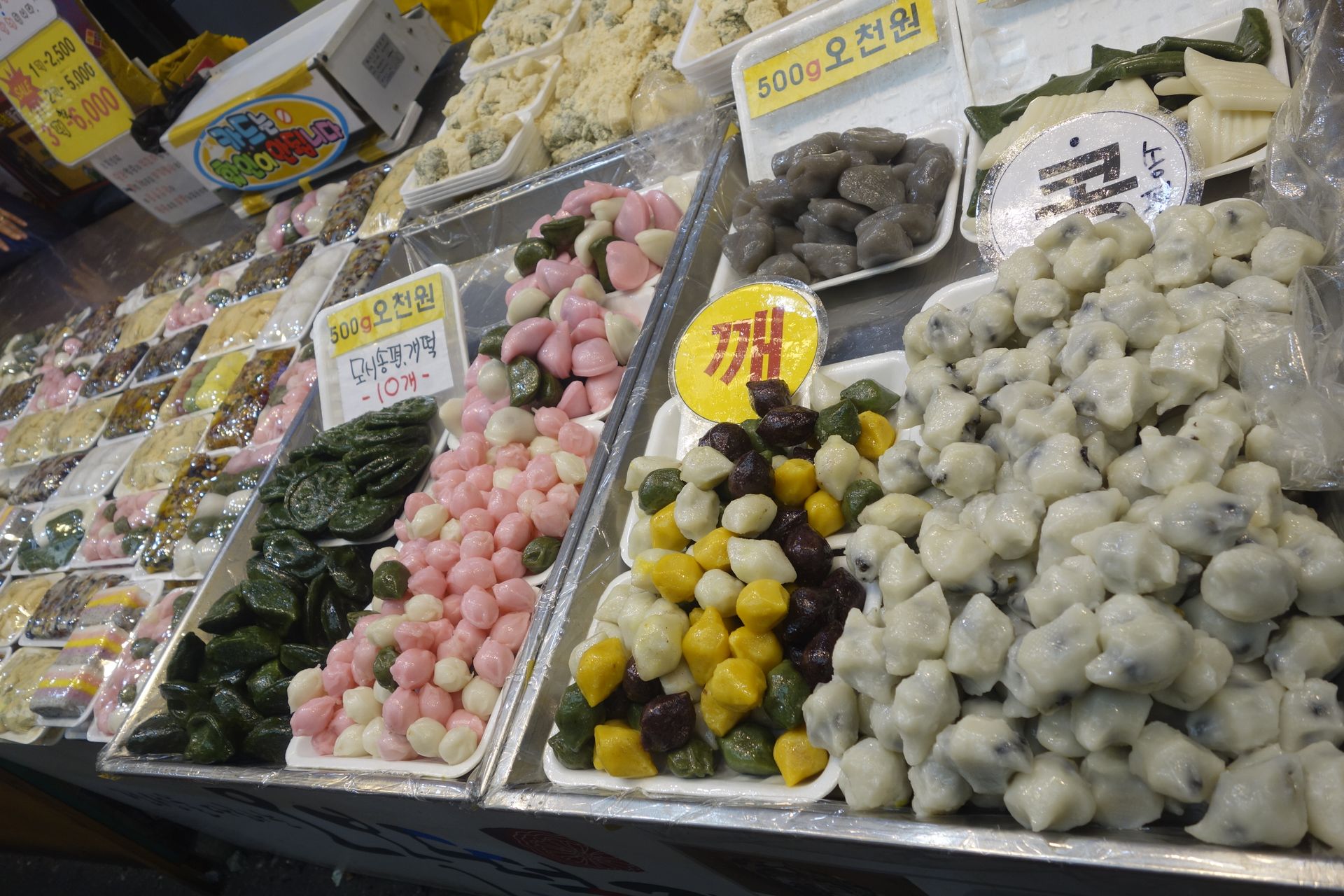

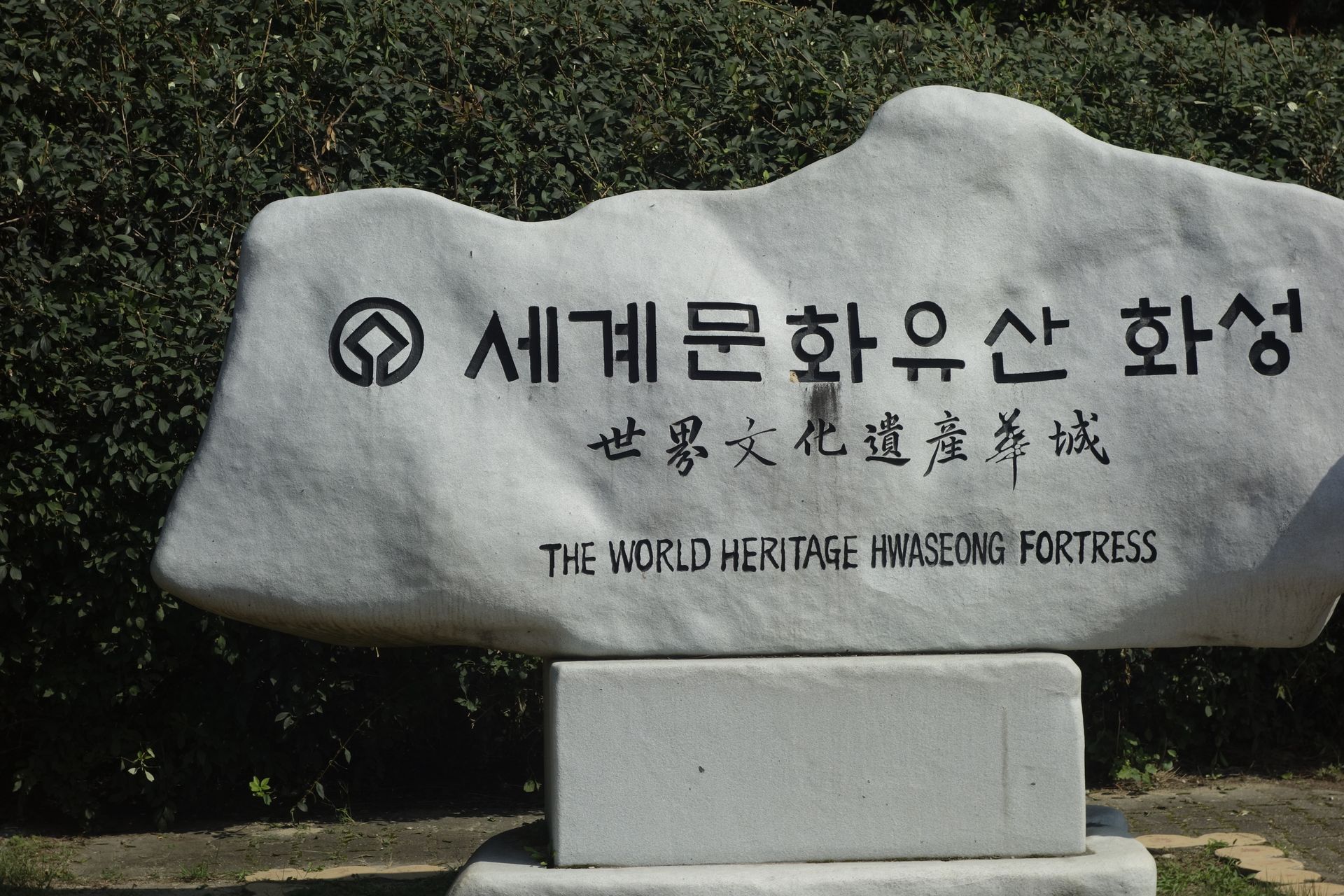
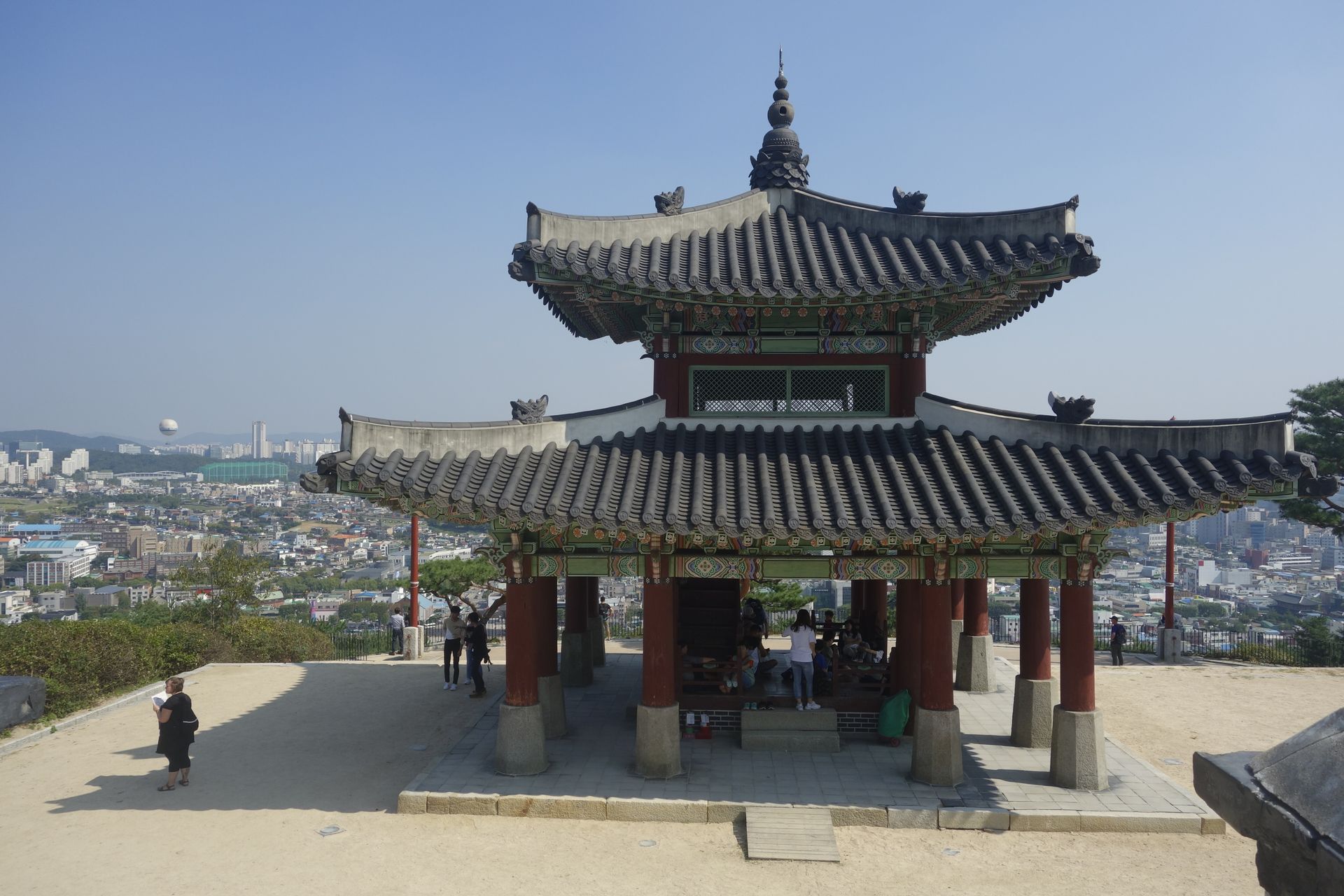


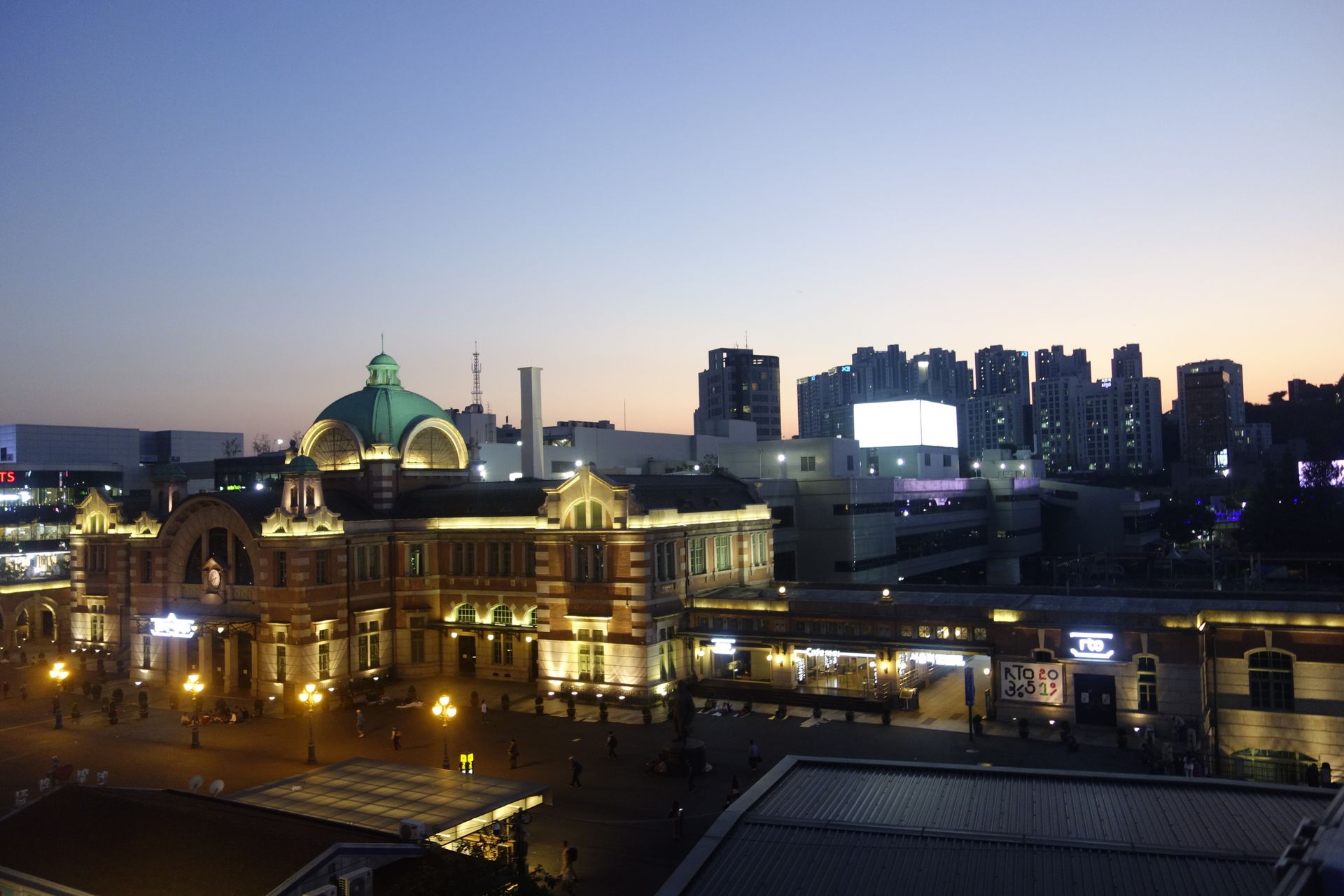
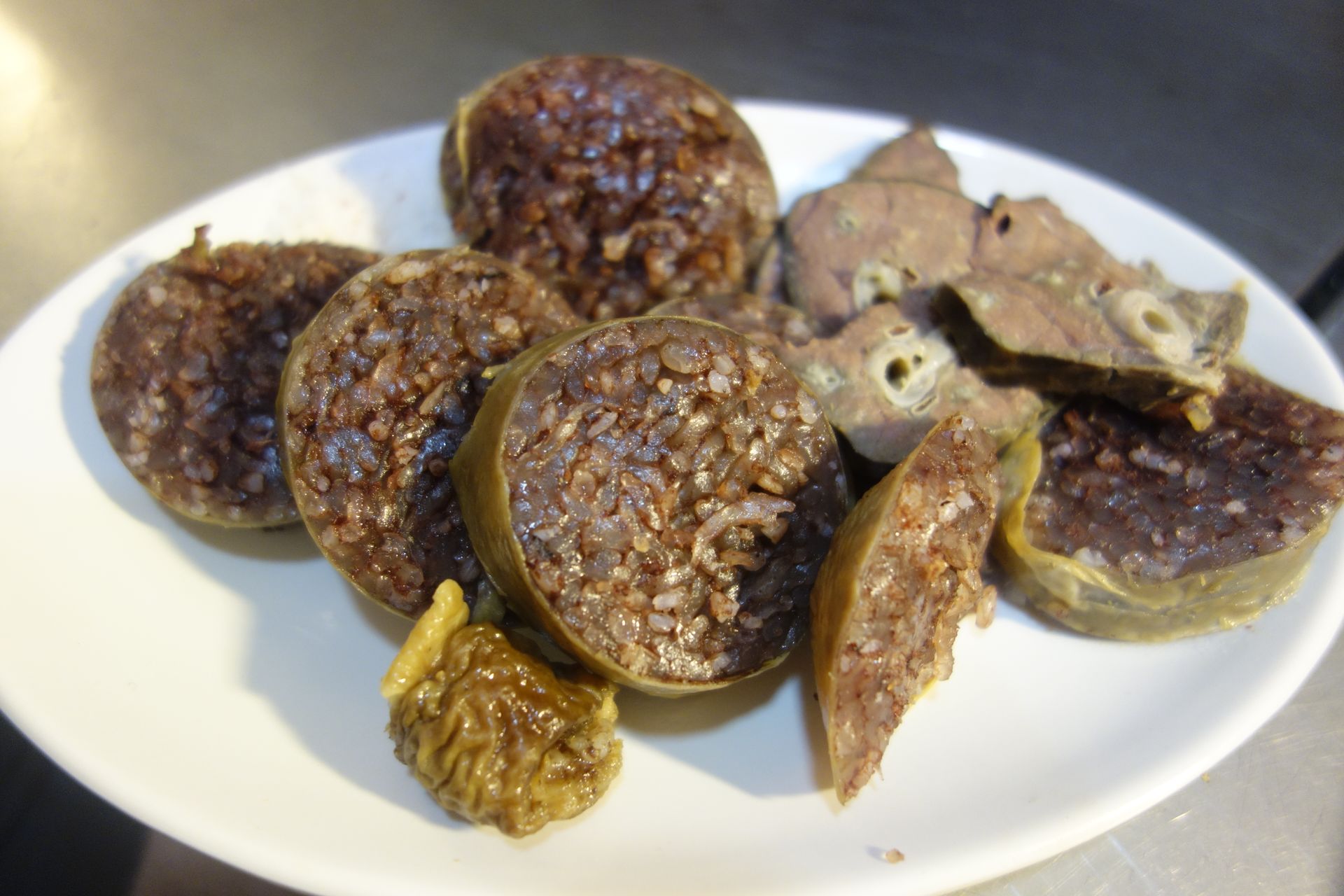
On the fifth day, it was time for a little trip to the surrounding area. The city of Suwon, south of Seoul, is even connected by subway. Here you can find the Hwaseong Fortress from imperial times. The wall is very well restored and can be walked around in about 2 hours with sometimes very steep inclines. However, we didn't feel like going to the palace in the center of the fortress anymore, but we did want to stop by the market to devour some Korean sweets. On the way back to the city, we visited the huge Noryangjin Fish Market, where you can get the freshest goods 24 hours a day and have them prepared in one of the dozens of restaurants on the top floor if you like (or order side dishes and eat them raw).
On the next day, Lea unfortunately got sick and had a slight fever, which unfortunately lasted more or less until the end of her stay in Seoul. Therefore, we refrained from activities that were too strenuous, such as hiking or lifting weights. A planned day trip to the DMZ (demilitarized zone), the border area between the two Koreas, was canceled due to a different disease. Because of the outbreak of African swine fever in North Korea and the discovery of two dead pigs south of the border, all tours to the zone were temporarily suspended.

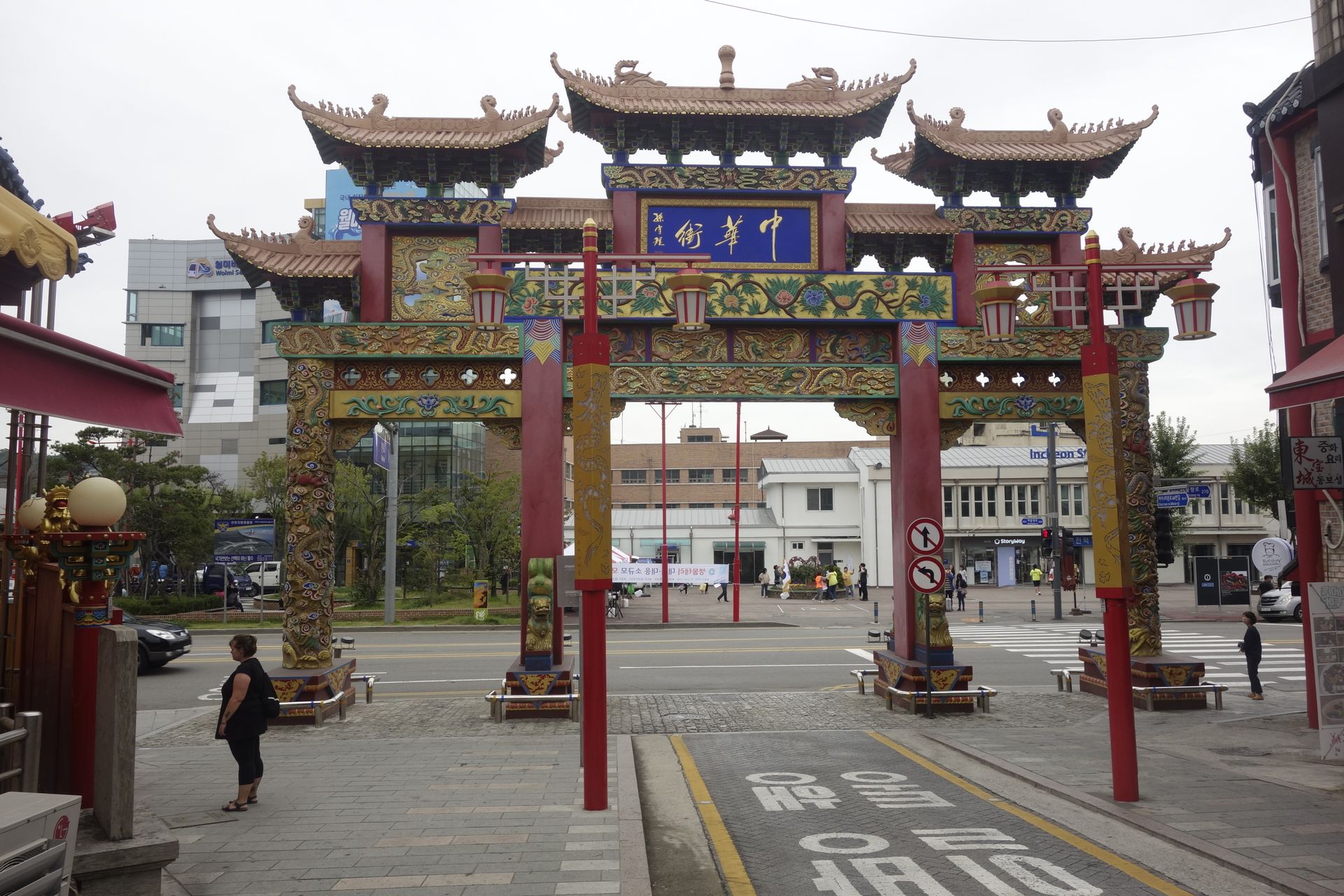
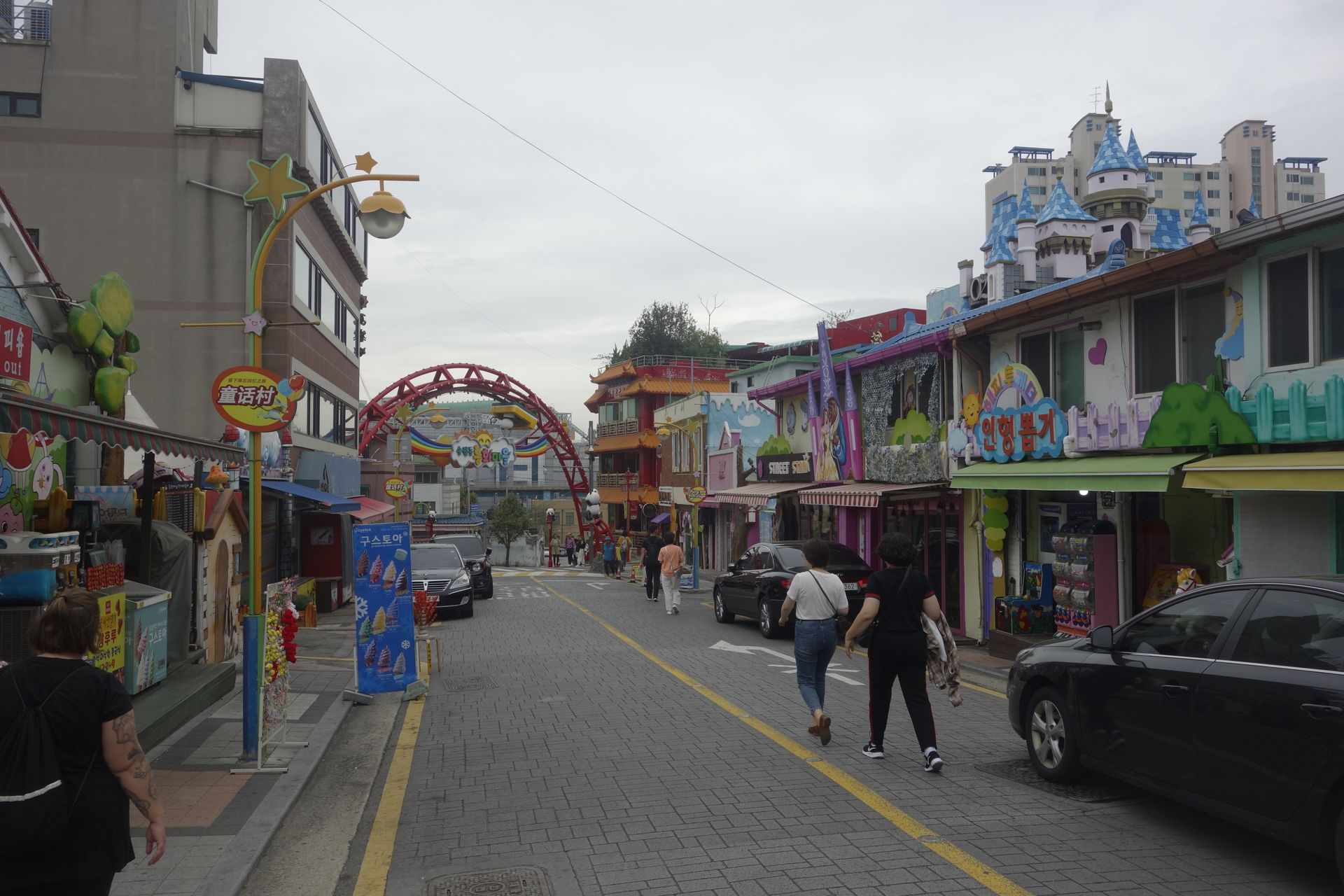
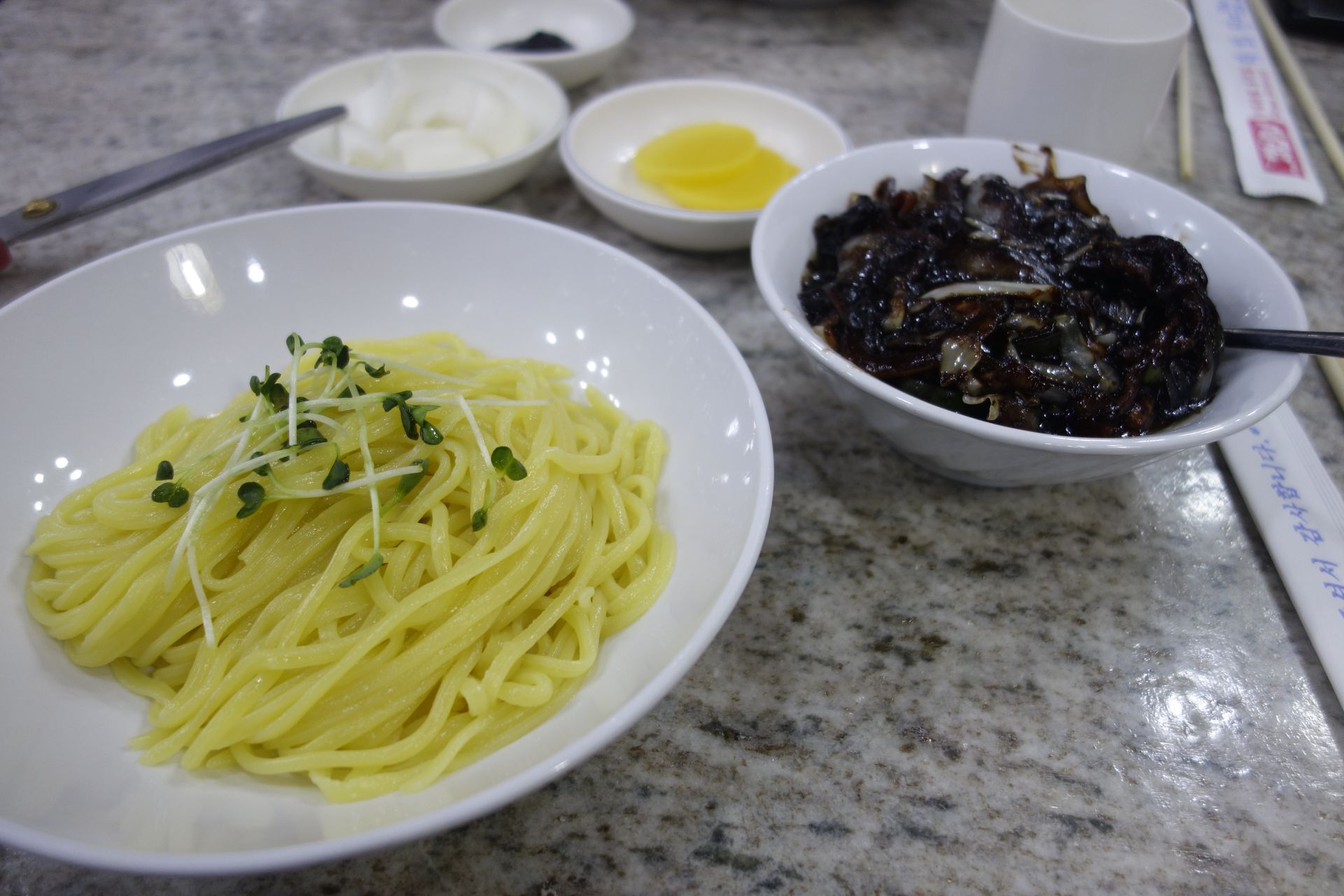
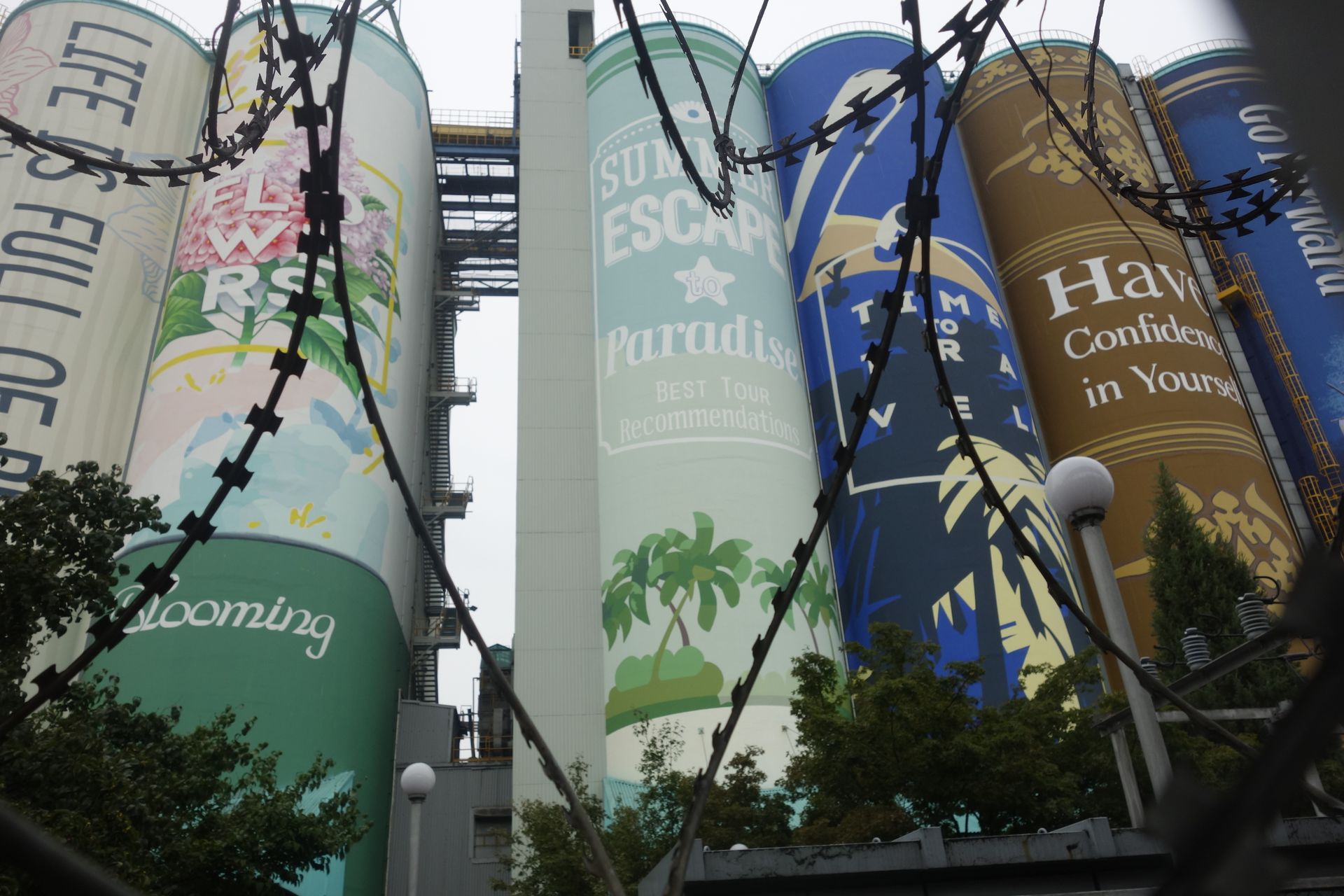
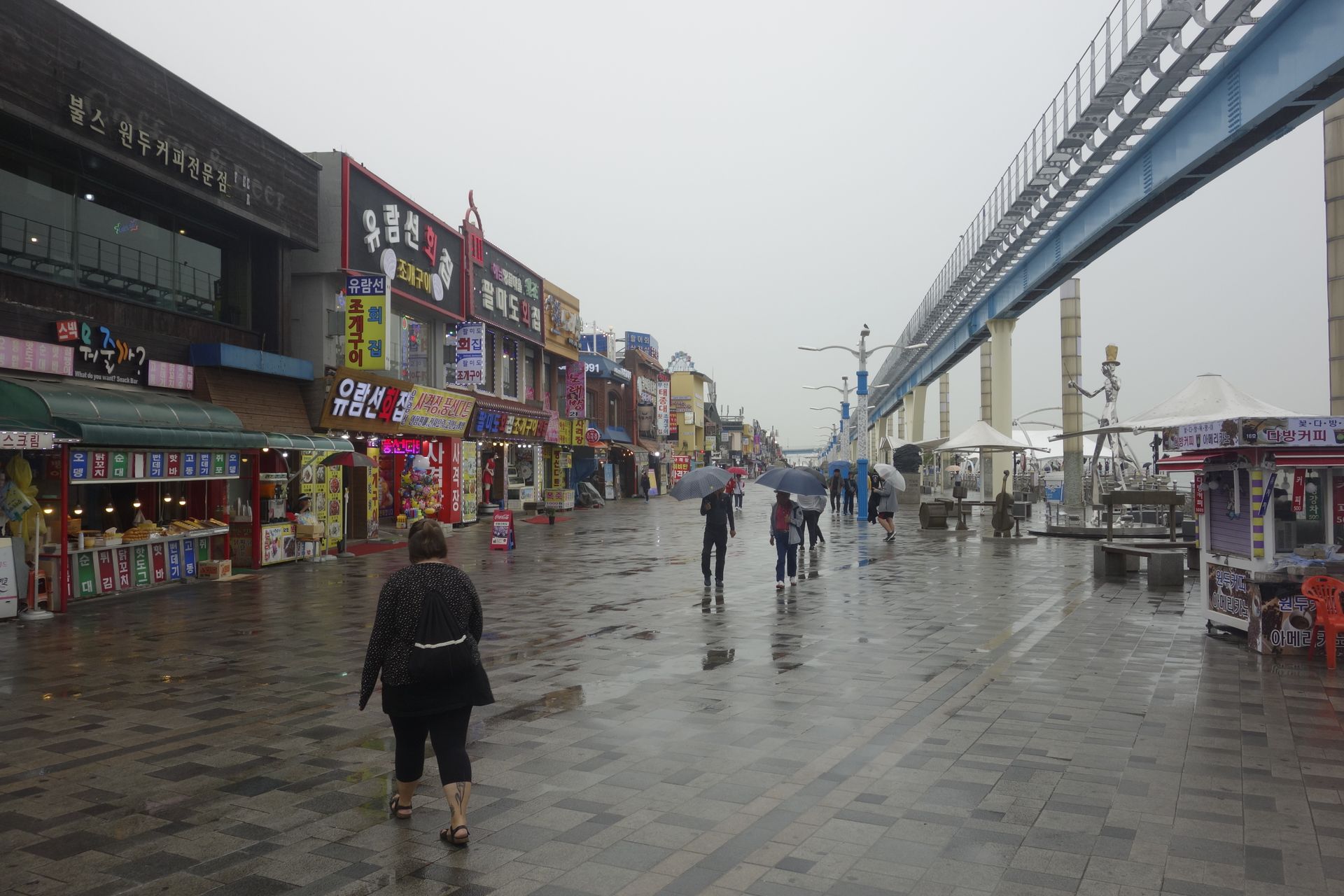
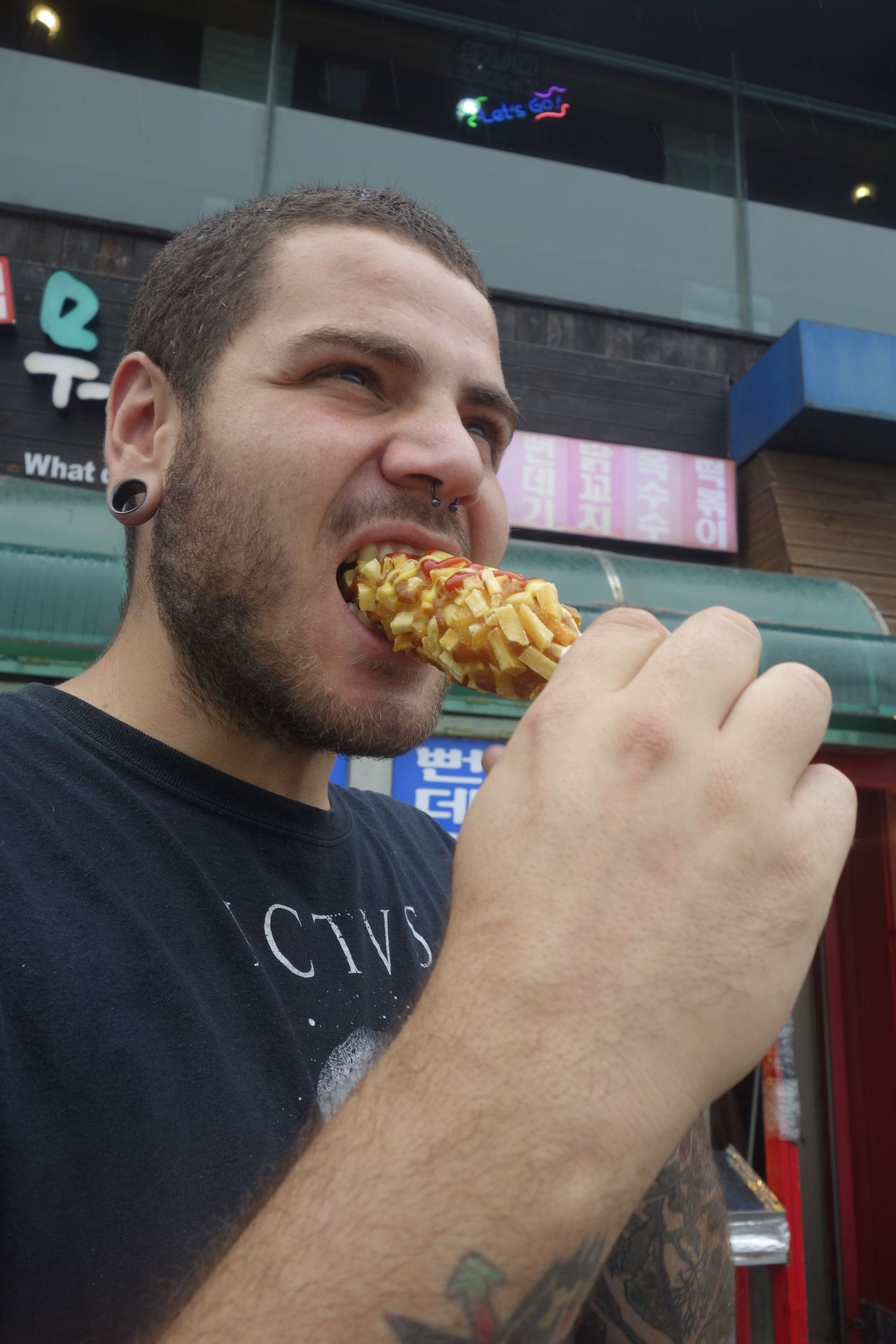
But we did make a trip to Incheon, the city west of Seoul. Here you can find South Korea's only Chinatown and spend a wonderful afternoon strolling around this colorful area and trying some Chinese-inspired Korean dishes. You can also walk out onto the now connected Wolmisan Peninsula to visit a rather trashy but still somehow charming Korean weekend destination. Including a theme park. Unfortunately, it started raining, so we only explored the area very briefly.




We made one last little trip on Lea's second-to-last day to the city of Guri in western Seoul. Here you can find the Donggureung site, where the tombs of several emperors and their wives are located. It is a beautiful, wooded area with beautiful clearings and imposing tombs, most of which are not allowed to be entered.
On Lea's last day, we only made a very short trip to the Gangnam district to see what the song is all about. It's just an expensive, fancy shopping area. In the evening, we treated ourselves to a multi-course dinner at a restaurant that serves Korean temple cuisine and has been awarded a Michelin star.
Now Lea is already visiting the countryside and Mathias has to figure out what to do with himself. He is still in Seoul, but soon he will move on. ... until we are reunited soon!

Đăng ký tin
Trả lời
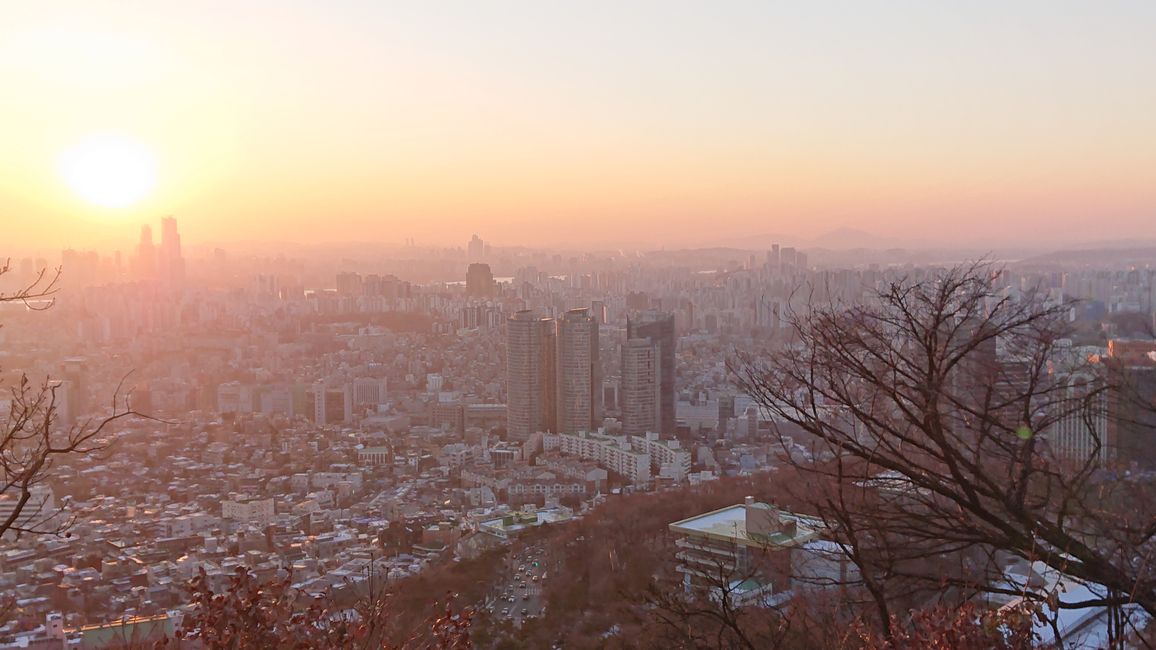
Báo cáo du lịch Hàn Quốc
